- PRO Courses Guides New Tech Help Pro Expert Videos About wikiHow Pro Upgrade Sign In
- EDIT Edit this Article
- EXPLORE Tech Help Pro About Us Random Article Quizzes Request a New Article Community Dashboard This Or That Game Popular Categories Arts and Entertainment Artwork Books Movies Computers and Electronics Computers Phone Skills Technology Hacks Health Men's Health Mental Health Women's Health Relationships Dating Love Relationship Issues Hobbies and Crafts Crafts Drawing Games Education & Communication Communication Skills Personal Development Studying Personal Care and Style Fashion Hair Care Personal Hygiene Youth Personal Care School Stuff Dating All Categories Arts and Entertainment Finance and Business Home and Garden Relationship Quizzes Cars & Other Vehicles Food and Entertaining Personal Care and Style Sports and Fitness Computers and Electronics Health Pets and Animals Travel Education & Communication Hobbies and Crafts Philosophy and Religion Work World Family Life Holidays and Traditions Relationships Youth
- Browse Articles
- Learn Something New
- Quizzes Hot
- This Or That Game New
- Train Your Brain
- Explore More
- Support wikiHow
- About wikiHow
- Log in / Sign up
- Occupations
- Transport Careers

How to Become a Boat Captain
Last Updated: July 28, 2022 References
Getting a Job
Expert q&a.
This article was co-authored by Nitzan Levy . Captain Nitzan Levy is a Sailor, Social Entrepreneur, and the Founder of Sailors NYC, a recreational sailors’ club based in Jersey City, New Jersey that specializes in cruising boats and a variety of community programs. Capt. Levy has over 20 years of sailing experience and has sailed in many places around the world including: the Atlantic Ocean, the Mediterranean Sea, The Caribbean, and the Indian Ocean. Capt. Levy is a U.S. Coast Guard Licensed Master of vessels up to 50 Tons with Auxiliary Sail and Assistance Towing Endorsements. Capt. Levy is also a NauticEd Level V Captain Rank Chief Instructor, an American National Standards Assessor, an SLC instructor, an ASA (American Sailing Association) Certified Instructor Bareboat Chartering, and an Israeli licensed skipper on Boats for International Voyages. There are 10 references cited in this article, which can be found at the bottom of the page. This article has been viewed 130,704 times.
Becoming a boat captain can be a time-consuming but rewarding process. A captain’s license isn’t necessary if you just want to take your own boat out for pleasure cruises, but it is required if you receive any compensation for your boat services. With the right education, experience, and test scores, you will be on your way to becoming a licensed boat captain.

- Learn communication skills through English classes and other language classes.
- Also consider taking computer classes and mechanical drawing classes.

- Get a degree in the field of marine transportation, marine engineering, maritime operations and technology, or shipyard management.

- Even if you can’t afford a full 4-year education, try to audit some maritime-related classes at your local university or community college.
- Look for classes offered by local organizations like the yacht club or sailing club.

- If you live near a coast, look for local businesses that specialize in these classes. If there's nothing near where you live, you can take an online course.
- These courses end in a written exam that can often stand in for the official exam. Check the Coast Guard website to find approved courses. [4] X Research source

- If this sea-time is spent under another captain's command, you will need to have this captain sign your license application when the time comes.
- Any time spent on a boat counts. So include hours working in positions such as a maid or deckhand on a cruise ship.

- Some positions to aim for are deckhand, third mate, second mate, chief mate, or engineer.
- Look for positions like tour guide, dockhand, sanitation officer, or boat mechanic.

- If it's not necessary, simply provide a statement with your application that says you don't need it.
- If a TWIC card is necessary for you, you can apply for it through the TSA.

- The Master license involves far more sea-time hours, but there’s no need to get the six-pack license first. Jump right to the Master if that’s the one you want.

- Additional identification will be required, such as a social security card or an I-551 alien registration card.

- You can submit your application and any supporting documents in person at a local Regional Exam Center (REC) or send it to the REC through the mail.
- If you're outside the U.S., you'll need to apply for the International Certificate of Competence (ICC) through the Royal Yacht Academy.

- References from licensed captains, commercial fishermen, or others who own and operate their own boats are generally best.
- These character reference letters should also be notarized.

- This exam will usually consist of multiple choice questions about deck and safety procedures, general navigation, and rules associated with operating a boat in shared waters. [17] X Research source

- If your application is approved, your license and credentials will be printed and mailed to you.

- Join your local yacht club or sailing club to make more contacts there.
- Go mingle with other captains at local docks and start up conversations with them. They may know of more job openings.

You Might Also Like

- ↑ https://bigfuture.collegeboard.org/careers/transportation-ship-captains-marine-pilots
- ↑ http://education-portal.com/become_a_ship_captain.html
- ↑ http://study.com/become_a_ship_captain.html
- ↑ http://www.dco.uscg.mil/Portals/9/NMC/pdfs/faq/exams_faqs.pdf?ver=2017-07-13-110959-517
- ↑ http://matadornetwork.com/notebook/how-to-become-a-boat-captain/
- ↑ http://www.payscale.com/research/US/Job=Ship_Captain/Salary
- ↑ Nitzan Levy. Sailing Instructor. Expert Interview. 24 April 2020.
- ↑ http://www.dco.uscg.mil/Portals/9/NMC/pdfs/faq/twic_faq.pdf?ver=2017-05-31-144812-903
- ↑ https://asa.com/news/2013/08/12/uscg-captains-license/#
- ↑ http://www.dco.uscg.mil/Our-Organization/Assistant-Commandant-for-Prevention-Policy-CG-5P/National-Maritime-Center-NMC/merchant_mariner_credential/
About This Article

If you want to become a boat captain, obtain your high school diploma or GED. After school, enroll in a captain’s license class or a college program where you’ll learn about navigation, tidal calculations, international and inland boating rules, and meteorology. Before you can obtain a captain’s license, you must have a minimum of 360 days worth of sea time within a 5-year period, where a “day” is 4 consecutive hours on the water. This can be piloting the boat or working as a deckhand on a cruise ship. For more information on getting your license, read on! Did this summary help you? Yes No
- Send fan mail to authors
Reader Success Stories
Aug 30, 2016
Did this article help you?
John Williams
Dec 7, 2021

Featured Articles

Trending Articles

Watch Articles

- Terms of Use
- Privacy Policy
- Do Not Sell or Share My Info
- Not Selling Info
Get all the best how-tos!
Sign up for wikiHow's weekly email newsletter

- Search Used Yachts For Sale
- Search Boats By Brand
- Search Boats By Type
- Search By Location
- Search By Price
- What's My Boat Worth?
- Search Boats Just Listed
- Small Yachts
- Custom Sport Fishing Boats
- Finance A Boat
- Amer Yachts
- Cabo Yachts
- French Yachts
- Gulfstream Yachts
- Hatteras Yachts
- Solaris Yachts
- Sunpower Yachts
- Sunreef Yachts
- Vela Boatworks
- Virtus Yachts
- Why List With United?
- Why Own A Boat Or Yacht?
- Custom Website For Your Yacht
- United Sold Boats
- Buy A Yacht With Crypto
- Find a Yacht Broker Near Me
- Search For Broker By Name
- Meet The United Support Team
- Our History
- Fort Lauderdale Boat Show
- Stuart Boat Show
- Miami Boat Show
- Palm Beach Boat Show
- Other Boat Shows
- Yachting News
- Yacht Closing Services
- River Forest Yachting Centers

Search All Yachts
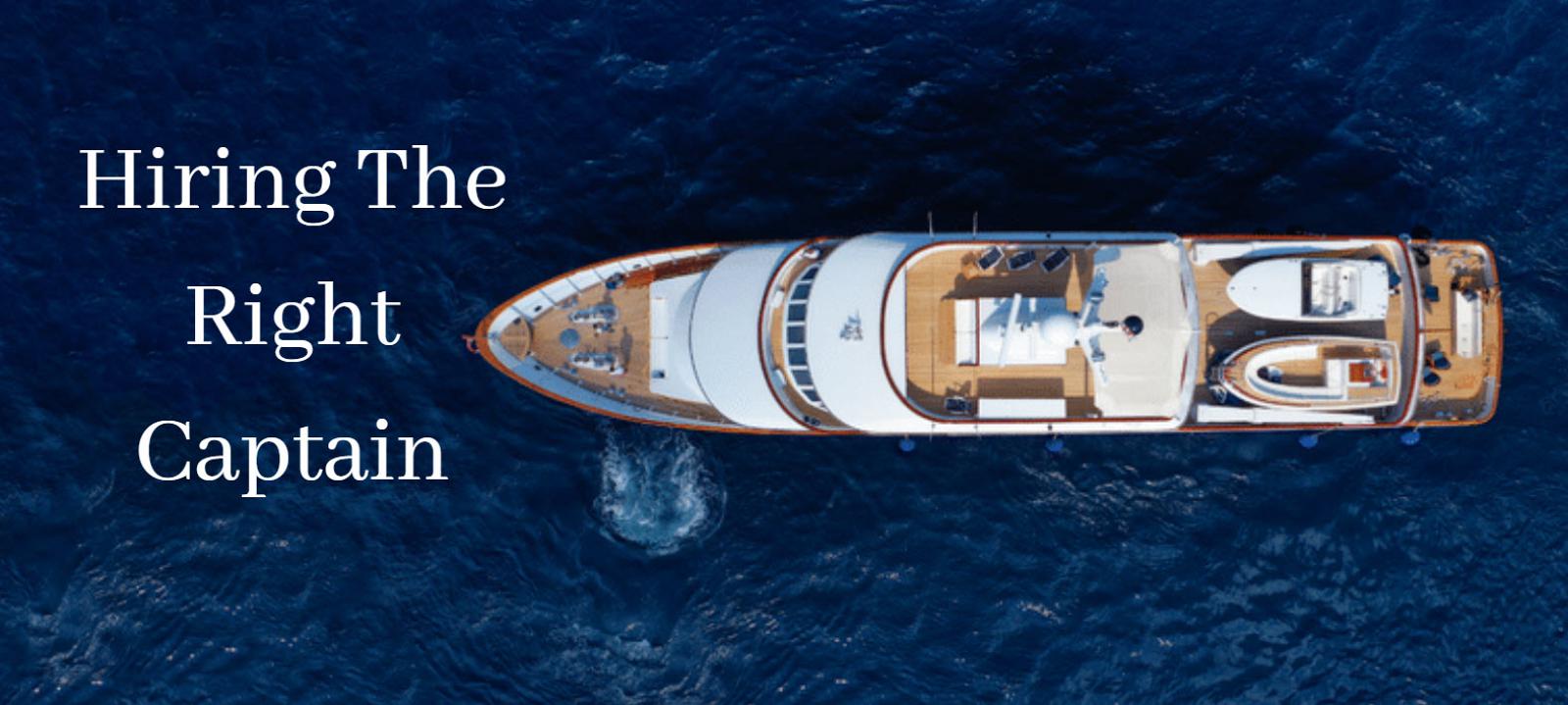
How To Hire The Right Yacht Captain
By Rob Bowman | Posted On Feb 25, 2021 Updated On Dec 12, 2023
"Hiring the right captain and crew for your yacht is the single most important thing you can do when it comes to enjoying your time on board," said Captain Jeff Palmer, longtime motor yacht captain turned professional yacht broker. "Especially for first time yacht buyers, the captain can really make or break the experience."
The reason people purchase a motor yacht is to enjoy their free time, relax in a stress-free environment, and to share this moment with their loved ones. When everything from the perfect weather, to the right destination, and the synergy among your guests is all aligned, the feeling is indescribable. It doesn't take but one mistake from the captain or a difficult crew member to put a damper on your plans. In extreme cases, hiring the wrong captain could even result in damage to your yacht, whether aesthetic or mechanical.
So where does a new yacht owner turn when hiring a captain? United Yacht Sales spoke with 3 longtime motor yacht captains to get their advice on what new buyers should do, as well as longtime owners looking to make a change.
Captain Ken Gibson
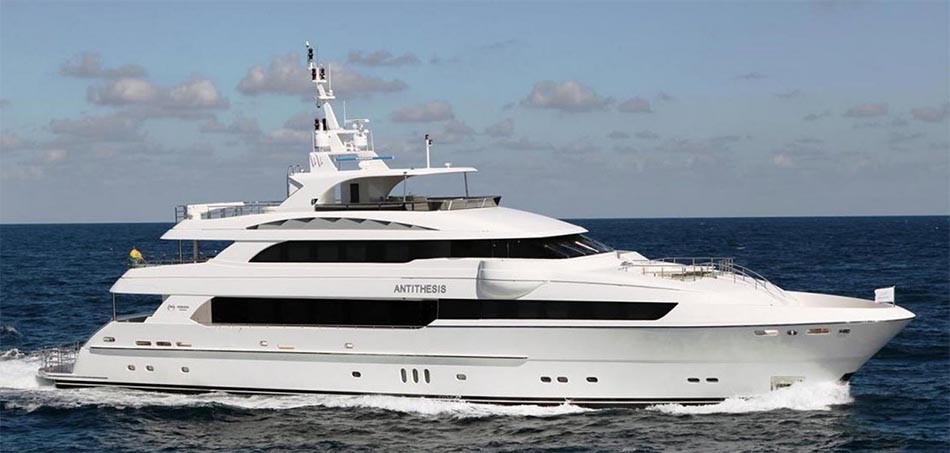
Captain Ken Gibson has seen it all. Since 1981 when he first got his captain's license, Ken has been both a captain for private owners setting out on month-long voyages to tropical destinations and for charter yachts earning income as a business. Ken has over 1 million miles on the water. He is currently in charge of a 136' Horizon Yacht that was sold in 2020 by United Yacht Sales broker Greg Graham . One advantage of working with a professional yacht broker is the referral of a reputable captain that broker knows and trusts.
Known for being very thorough and detail-oriented, Captain Ken spent 24 years in the Coast Guard and retired as a Commanding Officer based at the station in Fire Island, New York. His training has given him the skills needed to properly manage a crew and a yacht simultaneously. "I run the crew on board like a team," said Captain Ken. "Everyone on board has everyone's backs. Everything good and bad that happens on the boat comes through me and I am responsible for being the communication to the owner. A chain of command and a structure is very important when managing a large yacht. Good crew appreciate that structure as well"
He continued on the advantages of hiring the captain first and allowing that captain to hire the right crew members. "I don't take a job unless I am responsible for the hiring and management of the crew," says Ken. "I look for crew members that can do multiple jobs so our team is cross-trained and can be efficient."
So what did Captain Ken have to say about finding the right yacht captain? He says to look for these things:
- When you're reviewing resumes, look for the captain's experience in terms of longevity. How long have they been on their boat? Have they moved around a lot? Longevity is a sign of stability and maybe a glimpse into the owner's overall happiness with the job they're doing.
- Does the captain have leadership and management experience outside of yachting? Being able to motivate and get along with the crew is essential. I would advise new owners to look for some kind of overall management training or experience.
- Good captains are going to work 7 days a week for you and be on call 24 hours a day during the time they manage a yacht.
- Does the captain already have crew that want to work for him? This is an important sign as good captains generally have several crew members they have worked with for years and could be recommended.
Another question that often comes up is, "How much does a yacht captain earn?". Captain Ken says there is an often-repeated misconception that $1,000 per foot is the going rate for a yacht captain, which may have been true 25-30 years ago. "The best advice I can give is to find the right captain for you first and then discuss the compensation. The salary is dependent on a lot of details with that specific job. Especially if the captain will be working 7 days a week, they're essentially giving up months of their life at a time."
Finally, Captain Ken encouraged yacht owners to seek out the Private Facebook Group called (COC) Captains On Call . This is a private group you have to request to join. Only yacht owners and captains are allowed to be members. If you want to know more, Captain Ken can be reached at [email protected] .
Captain Ben Pollon
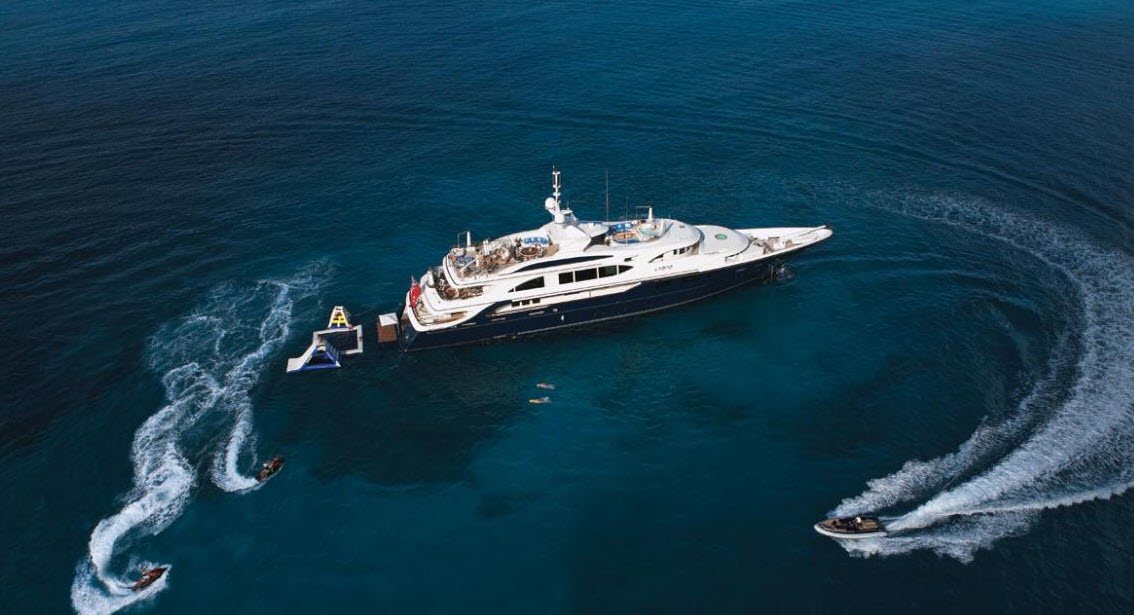
Captain Ben Pollon grew up in the Turks and Caicos Islands in a family of sailors who instilled in him a strong passion for the water. After owning a marine repair business in Fort Lauderdale, Ben became a full time captain, "Mainly on 50 to 60 meter yachts." he says. Ben went on to earn his 3000GT Masters License and spent over 15 years managing multiple high-profile charter yachts. "Some boats had 15-plus crew on board," Ben continued.
Ben knows what it takes to successfully manage a crewed yacht placed into a charter program and the demands it requires. “If you’re a new yacht owner, the best thing you can do is choose a Captain and thoroughly explain your needs and expectations,” Ben elaborated that running a large modern yacht is akin to running a small business with the Captain at the head of it "Giving a captain the tools he needs to run the boat effectively will ultimately result in a better experience for the owner when they step on board."
Captain Ben gave some additional pointers on where to find a captain and what to look for:
- Referrals can be great, but do your homework. If you interview a captain that was a referral from your yacht broker or a friend, make sure you ask to speak with past yacht owners they've worked for.
- Choosing a captain is size dependent. It's important that the captain's experience be relative to the size of the yacht you own.
- There's nothing wrong with going to a crew agency and letting them know you're looking for a captain. Getting the word out in the yachting community is important to getting a good selection of resumes.
- Don't rush your interviews. Ask for a second interview as you narrow down your choices. It's important to find a captain that fits within your program, whatever that may be. Find the right fit!
Captain Ben also agreed that $1,000 per foot for a captain's salary was dated. "Be open minded about the salary you're going to pay your captain," said Ben. "The pay is definitely commensurate on experience and I recommend working on finding the right fit, before discussions on salary even begin."
Captain Jeff Palmer
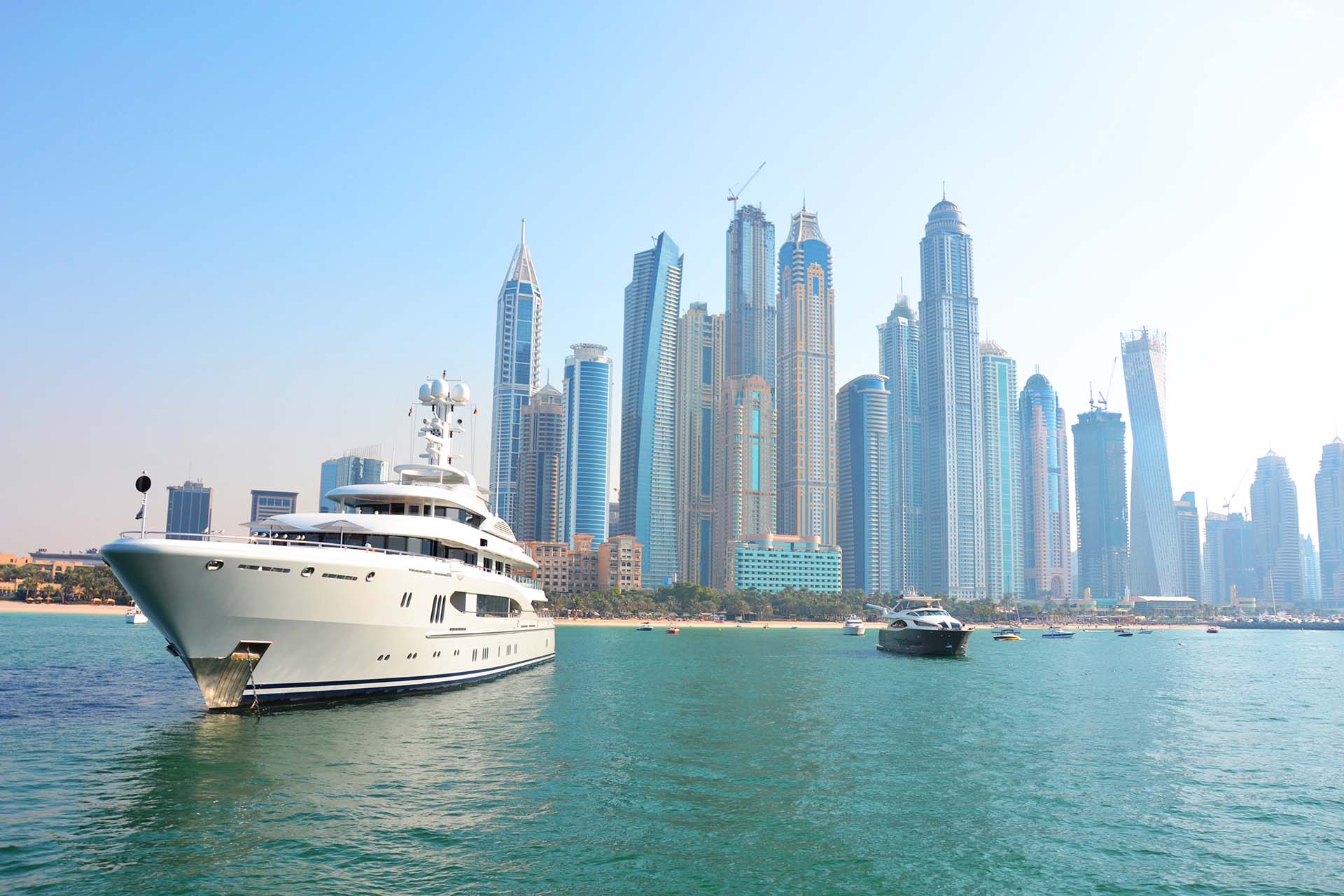
Captain Jeff Palmer has done everything there is to do in the realm of boating. He started as a welder and search rescue team member on the USS Dahlgren in the U.S. Navy, later becoming a deckhand on several yachts throughout the Caribbean. Jeff moved on to becoming a captain in 1992 and has managed everything from sailboats , to Hatteras Yachts , to "GEORGIA", the world's largest sloop at 159'. Mostly Jeff captained 180-foot plus motor yachts. Today, he's not only a professional yacht broker, but he's also part owner of United Yacht Sales.
Jeff has engrained himself in South Florida as the head recruiter for UYS and often speaks with brokers, captains, crew, and owners. "It used to be that boats over 60 feet had a captain and a crew member," said Jeff. "Now with the advancements in technology, that size has grown to over 75-feet on average. People want their privacy."
Still, Jeff is adamant with yacht owners about hiring a captain, "Seriously consider hiring a captain to eliminate the work and worry, while also getting to know your boat," he says. Jeff's top takeaways when it comes to hiring a captain include:
- Word of mouth is a big thing with finding a captain. Your yacht broker should definitely be able to introduce you to a captain or at least put the word of mouth out there. United Yacht Sales has a broker forum where all 200+ of our yacht brokers communicate with each other.
- Good captains don't have a lot of turn over. When you're conducting your interview, look for longevity in both the captain's employment, as well as how often crew changes positions.
- It's a huge benefit if the captain also has a mechanical background. A good captain will be able to guide you with servicing your yacht and be able to negotiate fair prices for repairs.
- References are great from past owners, but also ask for references from past crew as well.
Jeff confirmed what both Captain Ben Pollon and Captain Ken Gibson said about what salary to pay a yacht captain. "1,000 a foot has been around forever and it's archaic," he said. "A lot of what you're going to pay a captain depends on the program. Is it seasonal? Full time? What size boat and how many days on board? Will the captain get charter tips? There are a lot of variables to the discussion."
As a professional yacht brokerage firm in the industry since 2002 and with over 250 yacht brokers on our team, United Yacht Sales has the network of buyers, sellers, and captains to assist you in your yachting plans. Contact us today at 1-772-463-3131 whether you are looking to buy a yacht, sell your existing boat, or just want advice on finding a captain.
Related Articles You Might Also Be Intersted In :
- What Is The Best Time Of Year To Sell A Boat?
- How Much Should I Pay For A Yacht?
- How Much Should You Spend On A Yacht?
- What Does A Yacht Broker Do?
- Why Are Boats So Expensive?
- How Much Does It Cost To Buy A Yacht?
- Can I Sell My Yacht Without A Broker?
- How To Choose The Right Yacht Broker
- What Is The Best Sportfish?
- How Much Is A Sportfishing Yacht?
- How Much Does A Fishing Yacht Cost?
- How Fast Do Sportfishing Yachts Go?
- What To Do To Help Sell Your Boat Faster
- What Are The Most Popular Yacht Brands?
- Key Advice For Buying A Yacht
- How Much Does It Cost To Own A Yacht?
Interesting Boating Links
Worldwide yacht sales.
- Boat Sales Charleston SC
- Yacht Search By Location
- Cape Cod Boat Sales
- Sunreef 60 Electric Hybrid Catamaran Price
- Yachts in Jacksonville Florida
- Used Boats For Sale in Alabama
- Yachts For Sale in Georgia
- 15M Boat For Sale
Luxury Boats & Yachts
- Sailboats For Sale Texas
- Yacht Dealer
- Yachts For Sale by Price
- Used Center Console Boats For Sale
- Used Boats Near Me
- Hinckley Yachts For Sale
- 40 Foot Boat
- Bertram Yachts
- Azimut Yachts Price
- 60 Ft Yacht For Sale
- Prestige Yachts
- Yachts For Sale Near Me
Popular Builders & Models
- 50 Foot Viking Sportfish
- Cabin Boats For Sale Near Me
- 40 Sea Ray Sundancer
- 45 Ft Sea Ray Sundancer For Sale
- Used Contender Boats For Sale in Louisiana
- 36 Albemarle For Sale
- Motor Yachts For Sale
- Used Race Boats For Sale
- Express Cruiser Yachts For Sale
- Used Small Sailboats For Sale
- Back Cove 390
- Grand Banks Yachts For Sale
Trending Brands & Types
- New Yachts For Sale
- Jim Smith Yachts
- Used Ranger Tugs For Sale
- Used Grady White Boats For Sale
- Krogen Yachts
- Selene Trawlers For Sale
- Pershing Boats For Sale
- Beneteau Boats For Sale
- Riviera Boats For Sale in USA
- 32 Yellowfin For Sale
- Egg Harbor For Sale
- Used Hatteras Boats For Sale
- Palm Beach Motor Yachts
- Tartan Sailboats For Sale
SEND UYS A MESSAGE
Recent posts.

Mar 05, 2024
Cloud Yachts Joins United Yacht Sales

Yachts For Sale Near The 2024 Palm Beach Boat Show
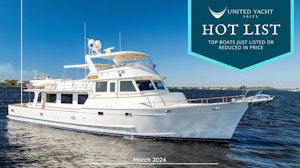
Mar 01, 2024
The Hot List - March 2024

Feb 14, 2024
Two Superyachts Added To United Yacht Sales Listings This Week
- Pontoon Boats
- Personal Watercraft
- nauticalknowhow
- Nautical Knots
- Tools and Calculators
What is a Yacht Captain Salary?
As yachts get bigger they tend to require more crew members who are more skilled at their jobs and that includes a good yacht captain. The pay range for a yacht captain can vary greatly and for less experienced captains on smaller vessels it may start around $45,000 while it can range up to as much as $300,000 or more for very skilled captains on larger luxury yachts.
Let’s take a look at what can affect a yacht captain’s salary and what you can expect to make (or pay) in this field.
Factors That Affect Yacht Captain’s Salary
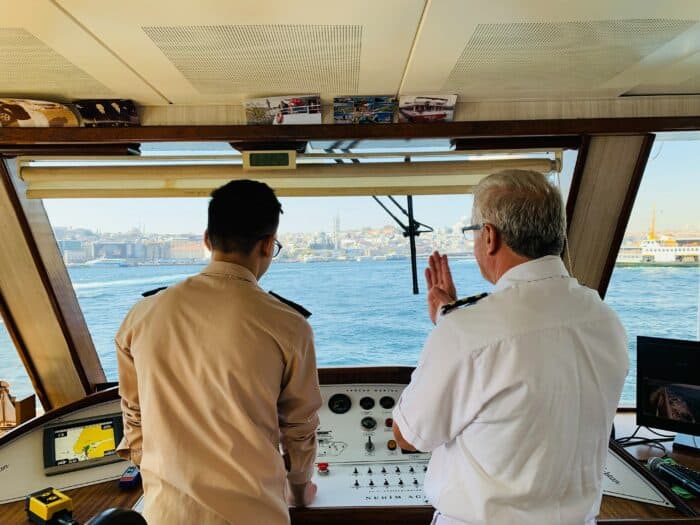
Most people feel a yacht has to be at least 60 or so feet in length before it’s considered a yacht. The longest yacht in the world is the Azzam which is just shy of 600 feet long. You can imagine that the captain of the Azzam has to deal with more than the captain of a 60 foot yacht. As such, the Azzam’s captain is probably making more money.
Size of the vessel is arguably the biggest factor in what a yacht captain gets paid. You can divide yacht sizes up into three categories as it relates to yacht captains to get a better idea of the pay involved.
I’ve included some survey data here taken from Dockwalk and this was gleaned from information provided by 476 different yacht captains to give you a pretty good idea of how much a captain makes at every single yacht size.
Junior Captain
A Junior Captain would be captain of the smaller yachts that rank in around 60 feet up to 100 feet. Many yachts of this size may only have one or two crew members on board to help operate them. The captain of a smaller yacht like this could expect to make perhaps $45,000 to $98,000 per year or more. Obviously this can change on a case by case basis depending on the specific duties expected of the given captain.
These smaller yachts have less involved operations and are, in general, easier to run which is why the captain of a yacht of this size would likely get paid less.
Survey data from 2021 shows that most captains working on yachts in this size range average just over $8,000 per month. On the low end of that scale were yacht captains pulling in about $3,100 a month while the highest paid make around $20,000 per month. Yacht captains can also pull in gratuities as part of the crew and that averages out to around another $1,300 per month.

In the middle is a Captain of vessels that range from 100 feet all the way to 170 feet which is superyacht territory. These vessels can include a crew of several different members and will require more organization and skill to maintain and run smoothly. At this size a Captain can expect to be making anywhere from about $80,000 per year up to $180,000.
Survey data from 2021 shows that, up to 140 feet, a superyacht captain can average about $10,100 per month. The lowest paid were making about $1,175 per month while the highest were again making around $20,000. You also pull in gratuities at this level that average just under $1,400 per month.
Yacht captains working vessels between 140 feet and about 190 feet were averaging $14,100 per month. At the low end of that scale you’re looking at $5,750 and it can go all the way up to $34,500 per month, so this is some serious money. If it’s a charter yacht, tips can reach nearly $3,000 a month as well.
Senior Master
A Senior Master is the captain of any yacht over 170 feet. This gets into megayacht territory at 200 feet and even gigayachts at 400+ feet. These captains have to be highly skill and managed not only massive crews that can include dozens of people, but a lot of more complex technology than the smaller vessels may be making use of.
Because of the demands of this job, it’s clear that pay grades increase substantially as well which is why captains at this level can make between $140,000 and $300,000 every year.
Survey data shows that between 180 feet and 240 feet, yacht captains had an average salary of just over $16,100 per month in 2021. That means a starting, low end salary of $9,200 per month which went all the way up to $23,250 per month. Tips closed in at just under $3,700 per month as well.
From 240 to 280 feet a yacht captain averaged just under $15,500 in 2021 which you’ll notice is oddly under the average for the next size down. The low end of the scale here paid just under $7,500 per month which is a good deal lower than the low end for slightly smaller vessels. On the high end captains were making $20,125. For whatever reason, yachts in this range just don’t pay as well as those in the 180 range, on average.
When you head to 280+ feet, the largest that the survey data was able to account for, yacht captains average about $20,500 per month. Remarkably, the low end here was $9,200 which is the same as vessels a full 100 feet shorter. However, on the high end some of these captains are making $32,000 per month. Factor in gratuities and that’s another $5,600 on average.
How Yacht Captains are Paid
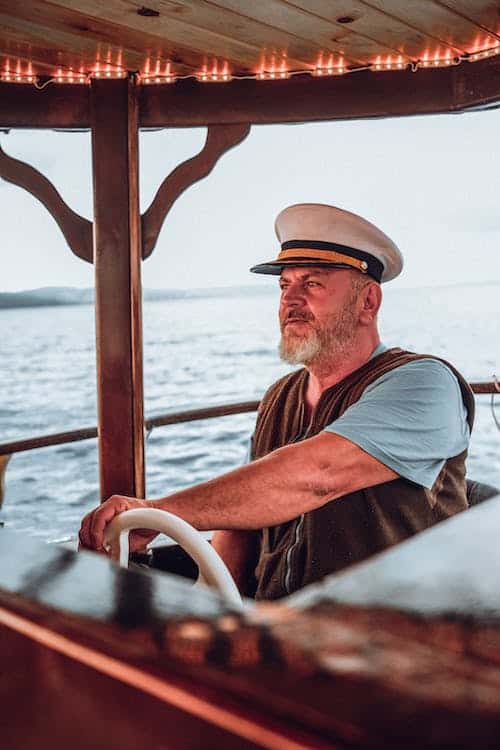
Most yacht captains get paid on a monthly basis. There are freelance captains who may also work under different payment terms. One such captain who responded to the survey charged $38 per hour as a flat rate. If they were chartered for a week, that would work out to $6,384 per week assuming you expect your captain to be ready for duty 24/7 on the water.
What do the Yacht Crew Members Make?
Like the captain, crew members can make more money on larger vessels and their experience in the business and time at sea can also factor in. But in general, here are some average numbers for crew salaries to put things in perspective.
First Officer
On a smaller yacht under 100 feet a first officer may earn up to about $65,000 per year. On a much larger yacht over 200 feet they could expect $100,000+
Second Mate
The bosun mate on a smaller yacht can start earning around $45,000+ per year. On a larger yacht over 200 feet this can be bumped up to well over $65,000 per year.
At the low end of the scale, on a smaller yacht a deckhand may make around $40,000 per year. However, on a much larger yacht they could potentially earn up to $65,000 per year.
Chief Engineer
A chief engineer on a small yacht may earn as much as $80,000 per year or more. On larger yachts that top 200 feet this can get closer to $150,000 per year thanks to the much more complicated machinery they need to deal with. They may also need to repair things like jet skis.
Assistant Engineer
The assistant engineer is obviously not earning what the chief does but they can still start at $45,000 per year or so. On large yachts this can reach over $85,000.
Chief Steward
The purser on a smaller yacht can make between $54,000 and $60,000. On the larger vessels this salary can increase to over $80,000.
A steward may make as much as $42,000 on some smaller yachts while that could increase to as much as $65,000 or more on larger vessels.
A trained chef can expect $60,000 on a small yacht and that can reach well over $105,000 on larger yachts. Many larger luxury yachts also bring in Michelin starred restaurant chefs to work for limited times and these chefs can earn quite a bit more.
On yachts up to 100 feet, a cook can look forward to making perhaps $54,000 to $60,000 per year. On the high end of the scale, a cook on a large yacht over 200 feet might make over $84,000 per year.
Motor Yacht Captains vs Sailing Yacht Captains
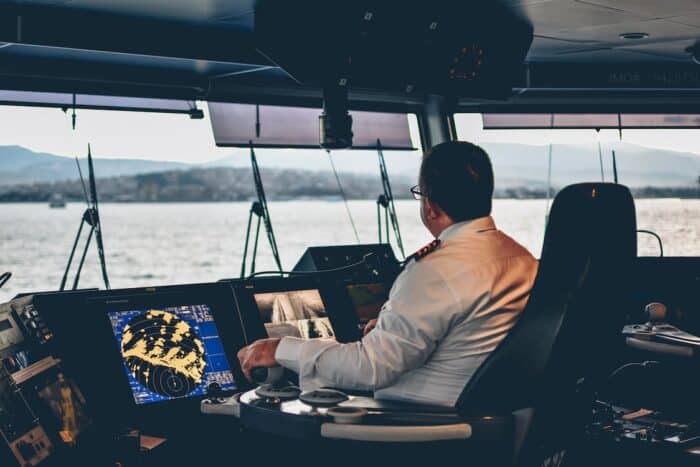
On smaller yachts, the salary difference between sailing yachts and motor yachts captains is often negligible or non-existent. As vessel size increases, the salary of a sailing yacht captain will tend to outpace that of a motor yacht captain, sometimes by a lot. Larger sailing yachts are often harder to come by and require more specialized knowledge so a captain able to handle a 200 foot sailing yacht is rather rare.
Jeff Bezos currently has the largest sailing yacht in the world at 416 feet while, as we said, the largest motor yacht is the Azzam at almost 600 feet. Though Bezos’ yacht has yet to hit the sea officially, we can assume her captain will be well compensated.
The Bottom Line
Because yacht captains may perform a wide range of duties for their clients, their pay range can vary widely as well. The yachting industry is nothing if not malleable about things like duties, yacht operations and salary ranges. As long as a captain is skilled and experienced they can expect to make a decent salary regardless of the size of the vessel, but it will definitely increase considerably as the yacht size increases. As such, yacht captain salaries can range anywhere from $3,100 per month to $32,000 per month.
My grandfather first took me fishing when I was too young to actually hold up a rod on my own. As an avid camper, hiker, and nature enthusiast I'm always looking for a new adventure.
Categories : Yachts
Leave a Reply Cancel reply
Your email address will not be published. Required fields are marked *
Save my name, email, and website in this browser for the next time I comment.
More in Yachts

Lonian Yacht: An Insider's Guide
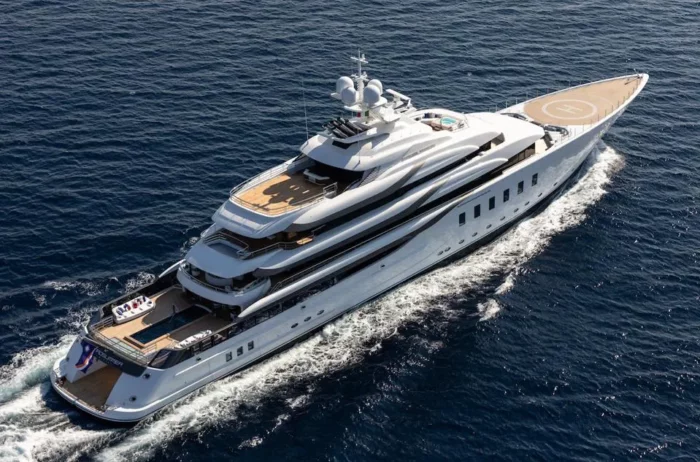
A Closer Look at the Madsummer Yacht
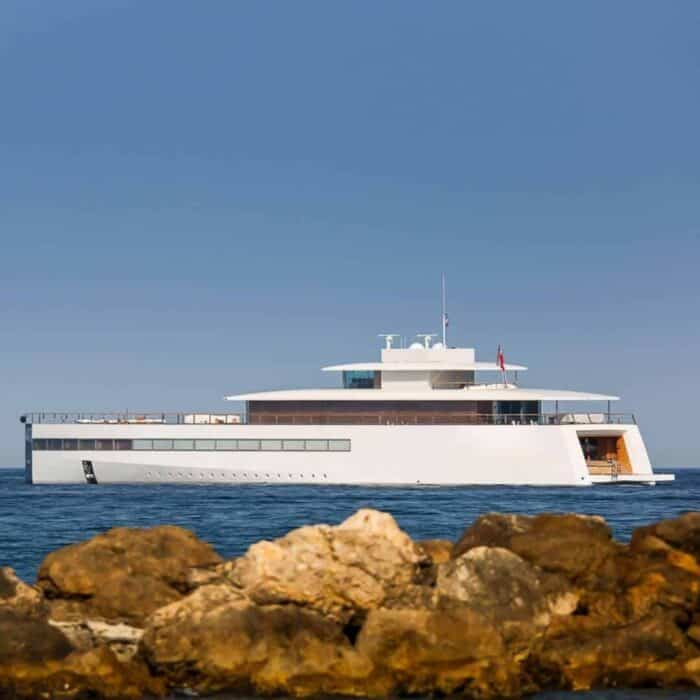
Your Insider’s Look at Steve Jobs’ Yacht Venus
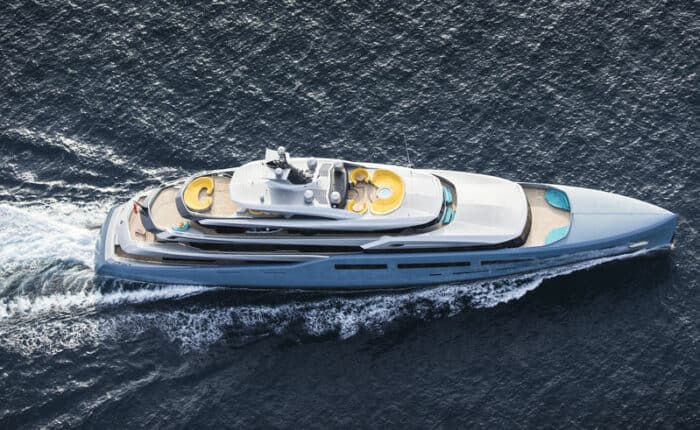
Your Insider’s Guide to the Aviva Yacht

The People’s Poncho Review and Ratings

Oru Lake Kayak Review

What Is A Gunwale?

131 of the Best Hawaiian Boat Names

167 Patriotic Boat Names
About boatsafe.
Established in 1998, BoatSafe is your independent guide into the world of boating, fishing, and watersports. We provide expert insights and detailed guides to help you find products tailored to your needs and budget.
Contact Boatsafe
- Address: 4021 West Walnut Street. Rogers, AR 72756
- Phone: (479)339-4795
- Email: [email protected]
Site Navigation
- How We Test
- Corrections Policy
- Privacy Policy
- Terms & Conditions
- Editorial Policy
- Affiliate Disclosure
Our Reviews
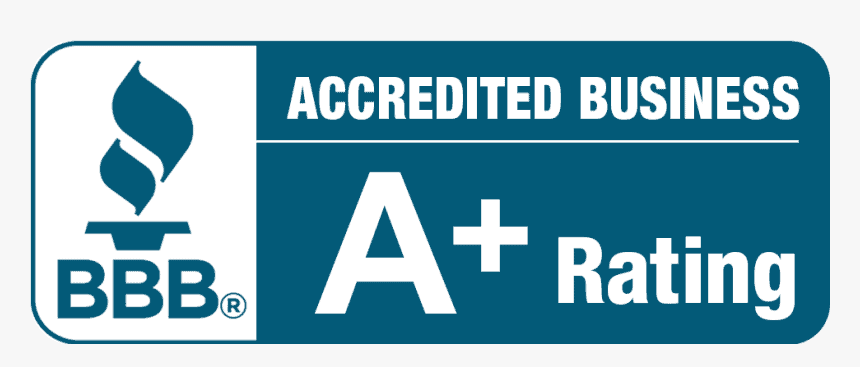
All content is © Copyright 2024. All rights reserved.
Be a superyacht Captain
So you want to become a superyacht captain.
The Captain of any yacht has one primary duty; the safe manning and operation of the yacht. This includes taking full responsibility for the crew, tenders, toy and all the guests onboard.
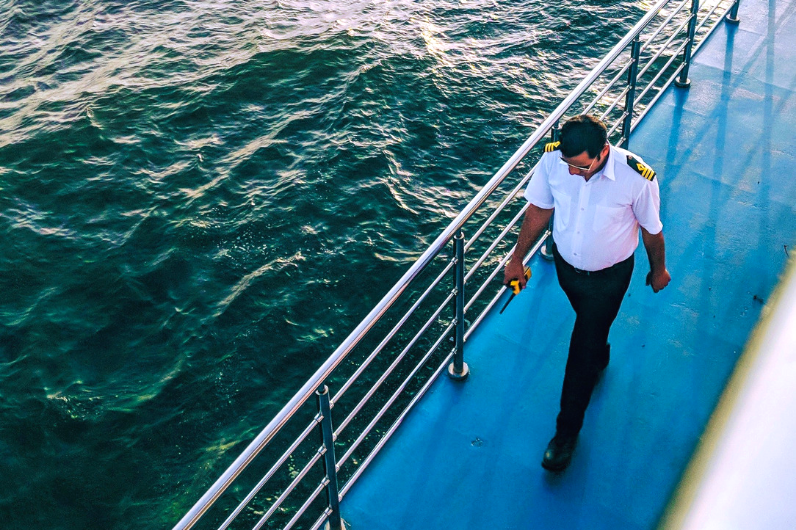
Job Role of a Superyacht Captain
As a rule, the smaller the yacht, the more hands-on the Captain must be. The larger the yacht, the more administrative duties the Captain will hold. A superyacht Captain specialises in commanding and managing luxury yachts over 24 metres in length.
Every crew member falls under the ultimate command of the Captain and will answer to him/her.
What does a Superyacht Captain do?
As a superyacht Captain, you’ll be at the top of your game, responsible not only for the yacht itself, but also for its crew, itinerary and navigating safe passages across the oceans. You’ll be in control of budgeting, administration, refit projects, yard visits, personnel, health and safety, to name but a few.
Personality traits
What personal traits are beneficial for this role.
You will need great communication skills to deal with owners, contractors, crew and guests alike. You will be dedicated to a career at sea and will already have established yourself in the industry having worked your way up the deck officer ladder building a reputation as a first-class professional along the way.
As a Captain, you must be highly skilled at dealing with people, both crew and the owner/guests. Personnel management skills are critical within this role.
Skills required to be a Superyacht Captain
What skills or experience are required.
Captains must have considerable maritime experience and training. A Captain of a superyacht has to have excellent seafaring knowledge, a good grasp of accounting, IT and administration and also deal with authorities on matters such as paperwork and health and safety.
Previous experience of yacht handling is essential and handling a yacht of the same or similar sizes a distinct advantage.
Benefits of being a Superyacht Captain
Your role really will be all-encompassing and you’ll answer to the yacht’s owner about all the decisions you make. A career as a superyacht Captain is demanding but rewarding. You’ll enjoy worldwide travel and earn a fantastic salary of anything from €4,000 per month with no cap on salary!
How to start your pathway to become captain?
More than just a love of the sea and a captain’s hat are needed to start a career as a superyacht captain. This is a career path that requires commitment, training, and practical experience. Enrolling in classes that offer the required maritime qualifications is the initial step. Take the Superyacht Cadetship Course as your first step into this fascinating industry. This extensive programme gets you ready for the rigours of the open sea by fusing classroom instruction with real-world sea experience. It is essential to network within the industry, and UKSA offers a helpful community that helps you take advantage of opportunities and pick the brains of industry experts. And never forget that your love of the sea serves as your compass; follow it to become a captain.
Career prospects
Be inspired graduates return to uksa to hire crew and further their training.
“We trust in UKSA because we did our training there and can vouch for its quality. Because the courses are all-inclusive they run back-to-back which really helps with fitting around our schedules. It is the best place from which to hire successful crew because the career courses are similar to a university degree. UKSA students devote time to their training and so are looking to stay with a boat for at least two seasons. This is valuable to us as we take time to invest in our crew and training – with UKSA we also know what to expect.” Officer Daniel Lambert
- MY Icon – 6 generations of UKSA trained crew now all working together
- Dan Snook – Planning to come back to UKSA for his Master 3000gt modules
Register your interest
- First name *
- Last name *
- How did you hear about UKSA? * –None– Campaign Dinghy Show Educational Visits UK Event GroupAccommodation.com Guardian Media IOW College IOW County Press London Boat Show Online PlanMySchoolTrip.co.uk Press Radio Referral School Travel Organiser Social Media Southampton Boat Show Top School Trips UKSchoolTrips.co.uk Visit IOW Yachts & Yachting
- General notes
- Opt-in to receive course information and relevant offers
- Accept Privacy Policy and Terms and Conditions .
- Phone This field is for validation purposes and should be left unchanged.
If you have any questions or need to get in touch:
Speak to UKSA on +44 (0)1983 294941 or email us
If you're seeing this message, it means we're having trouble loading external resources on our website.
If you're behind a web filter, please make sure that the domains *.kastatic.org and *.kasandbox.org are unblocked.
To log in and use all the features of Khan Academy, please enable JavaScript in your browser.
Course: Careers > Unit 15
- Yacht captain: What I do and how much I make
Yacht captain: How I got my job and where I'm going
- Yacht captain: My budget and planning for the future
Want to join the conversation?
- Upvote Button navigates to signup page
- Downvote Button navigates to signup page
- Flag Button navigates to signup page
Video transcript
- Brokerage New Construction How to Buy How to Sell
- Yacht Fleet Yacht Catalog Charter Marketing Destination Guides
- Financial Services Payroll & Accounting Payroll Service Process Logistical Support Admin Services Crew Admin
- Job Descriptions Crew FAQ
- About Sitemap
How Much Does a Yacht Captain Make?
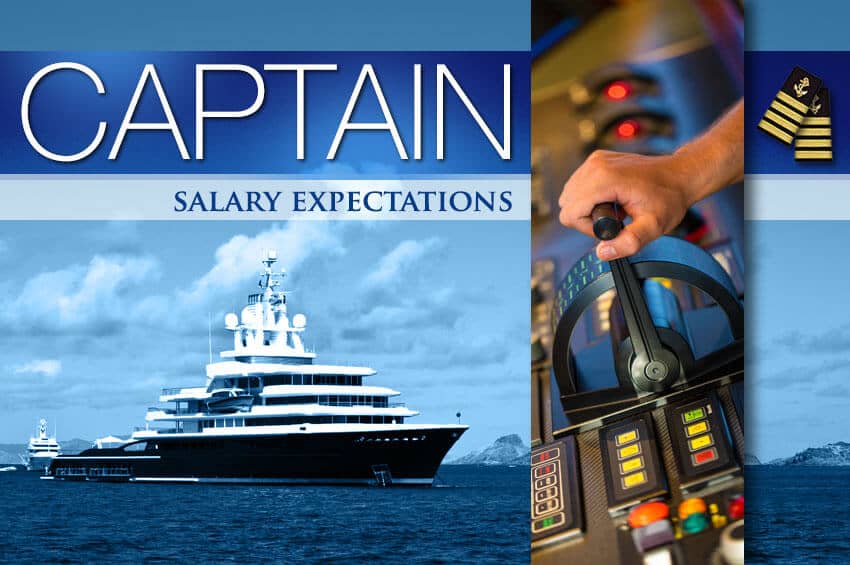
Captains of luxury yachts command a base salary well into six figures. Dependent on the length of the vessel, tenure of experience, and level of licensing yacht captain salaries range from $48,000 to over $300,000.
As the length of yachts increases, the complexity of the position of captain escalates. Although the job of yacht captain is often portrayed as one of luxury and leisure, it is a career choice of vast responsibility. While the exact details of a job description vary from program to program, the captain is the CEO of a small corporation. He/she reports to the Chairman of the Board - the yacht owner.
The Luxury Yacht Group webpage presents salary guidelines. Variation within the ranges reflect license level, experience and longevity of the captain 1 .
Additional parts of the salary package include bonuses, health insurance, flight expenses, paid vacation, training and certification cost reimbursement, and uniforms. Because the position requires residency aboard the vessel 24/7 all food and sundries are routinely supplied to crew. If the yacht is available for charter, the captain will also earn tips from charter guests. The industry is unique and each vessel in it has individual programs.
An average mega yacht with 12 crew has operating expenses between four and ten million dollars. The budget is based on where the yacht is moored, whether it is available for charter, and its travel destinations. On some yachts, a management company or a part of the owner’s business network handles accounting and makes financial decisions. On other yachts, the captain manages all aspects of the budget, chooses what charters to take and where to station the boat between charters, when and where to have yard work, and all personnel decisions.
A basic list of captain job responsibilities includes:
- Ultimate safety for passengers, crew, environment & vessel
- Achieving owner’s objectives?
- Crew hiring and dismissal?
- Personnel management?
- Shipyard/project management?
- Legal and regulatory compliance?
- Navigation?
Ultimate safety
The Captain holds the life of all aboard in his hands. He is also held accountable for the yacht itself and the environment. He must understand the mechanics of the boat, all electronic tools aboard, international regulatory requirements, and rules of the flag state.
Achieving owner’s objectives
Owner objectives are broad ranging. The captain is the mouthpiece for the interests of the owner. He holds the responsibility to reach outcomes which benefit the owner. The owner may simply require the captain to provide luxury service when he (she) is aboard. Some owners regularly use the vessel with family and guests, others may be aboard only occasionally. Charter periods for the vessel also factor into the objectives of the owner.
Crew hiring and dismissal
The requirements of the Marine Labor Convention (MLC) for contracting, dismissing, and managing are explicit and require strict adherence. Throughout any hiring or dismissal, the safety of the vessel and owner as well as issues of confidentiality must be assured by the captain. Identifying the best employees for the program involve a balance of certification, experience and personality.
Personnel management
Managing between 12 and 40 regular crew members aboard a mega/superyacht, day workers and seasonal hires is routine. From dive master, to stewardess, chef, and ETO, the captain must have a working knowledge of the positions and set expectations for performance. In a multi-cultural environment (both guests and crew), the example the captain sets for work ethic, responsibility, and communication optimizes yacht operations. The challenge is complicated by the close quarters of crew accommodations and the group working/living together 24/7.
Shipyard/project management
The Captain oversees issues of time and costs for routine maintenance and vessel upgrades. Knowledge of register and flag requirements are tools the captain uses to define the project, obtain quotes, and supervise the work.
Legal and regulatory
The maritime industry is dynamic. In addition to the flag state and regulatory requirements mentioned above, the captain must remain current with all Maritime Guidance Notices (MGN), Maritime Information Notes (MIN), amendments to all international marine safety codes, and product notices. A knowledge of the global differences in regulations, enforcement agencies and regional mores is critical.
Each vessel has a different business model. At a minimum, the captain is responsible for budget oversight and financial record keeping. If the owner engages a management company, the captain is the interface between the yacht and that organization.
The classic definition of a captain’s job is that of a navigator. Safely plotting a course, following the course, docking and departing from berths are all fundamental vessel handling skills. A seasoned captain has personal familiarity of cruising geographies. Despite the importance and skills required, a small percentage of a captain’s time is dedicated to task.
How does that list of responsibilities distill into the profile of a captain? It takes decades of training, hours logged, certification, and experience to reach the level of performance required to captain a mega/super yacht. In addition to each of those quantifiable requirements, elements of character and temperament differentiate captains.
- Calm and charismatic personality?
- Superior leadership, communication, management and diplomacy skills?
- Excellent boat handling and navigational skills?
- Excellent ISM and ISPS knowledge and practices?
- Excellent maintenance, engineering and technical / troubleshooting experience?
- Ability to remain calm and give directions in an emergency situation?
- Organized and methodical?
- Financial management, business acumen, management skills?
- Languages and cultural sensitivity
- Extensive maritime licensing
Leadership of the crew involves training, coaching and refereeing. When a captain steps into the position of leadership on a large vessel, it is understood that he has ten years (minimum) of increasing responsibility. Training and education were used during that decade to resolve situations without damage to vessel, harm of the environment, or human injury.
As manager and protector of the owner’s investment, the captain negotiates for goods and services. When issues arise, it is the captain who develops options and makes recommendations. Using the comparison to a traditional business, the CEO (captain) and the President of the Board (owner) interface on strategic decisions.
The mega yacht captain is more than just an asset manager. The captain implements owner preferences in order to assure him the best yachting experience. Once an owner has determined the style of yacht he wants to own - how, when, where they want to use vessel - costs of operating and budget generalities are defined. The ultimate goal of captain and crew is the happiness of the owner(s) and their guests. Crew is the primary factor in the owner/guest experience and in a successful program. The captain fully understands and manages the limitations of vessel and crew.
As vessels increased in length, machinery and electronics increased in complexity. In parallel with those changes, regulatory agencies and flag states requirements escalated. The requirements of International Safety Management Code (ISM) and International Ship and Port Security Code (ISPS) reflect the challenges of operating a mega yacht. The captain holds responsibility for implementing all requirements aboard and remaining current with the changes made to respond to new issues within the industry.
During the last decade, the number of superyacht hulls nearly doubled. Based on the 2010 Global Order Book, the superyacht industry managed to grow even during the financial crisis of 2008. The Knight Frank Wealth Report (2016) for the decade concluded that the wealth required to maintain a yacht appears impervious to economic cycles. It does project a slight worldwide slowing of the number of ultra-high-networth individuals during the upcoming decade.
How does that economic data translate into job opportunity for yacht captains who have followed the established career path? How resilient is the opportunity during periods like the global downturn experienced in 2008?
Marcy Laturno, Director of Crew Placement & Charter Specialist at Luxury Yacht Group answered:
A long-term mega yacht captain added:
Securing a position as captain aboard mega and super yachts is competitive. Although new builds are released every year, each year there are additional individuals who have established professional credentialing and adequate experience aboard. Professional captains seek positions where they can assemble a stable crew, build longevity and establish a relationship with the yacht owner.
The position of mega/super yacht captain commands a salary which reflects the level of responsibility and the years of personal and professional development. A relatively small number of positions creates a competitive job market where longevity and experience are rewarded.
- Luxury Yacht Group website

Engineering License Changes
The MCA has restructured the engineering certifications. The MEOL course has been done away with, and the AEC course made mandatory and more thorough. Luxury Yacht Group explains all these changes, what engineers progressing through the ranks can do now, and how Y ticket holders can convert their licenses over to the structure.
14 Mar 2018
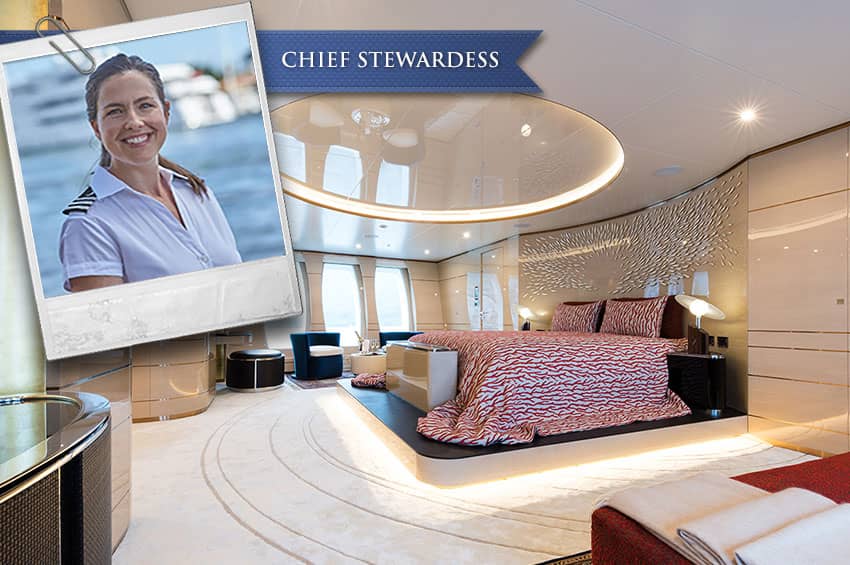
A Day in the Life Series – Chief Stewardess
For a yacht to run smoothly, it requires many working parts, and the interior department is a large component of this. The chief stewardess oversees this department and makes sure all the stewardesses onboard know what their tasks and responsibilities are. The interior department is largely in charge of the guest services whilst they are onboard, and responsible for interior maintenance of the yacht when they are not.
18 Dec 2017
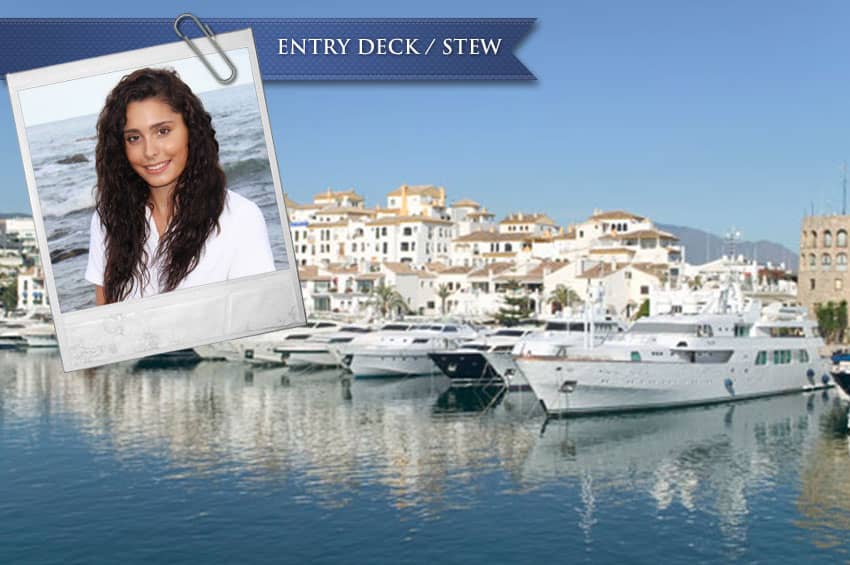
A Day in the Life Of Series - Entry Stewardess
Joining the yachting industry is an exciting and daunting undertaking. In this two part interview we speak with Melanie about why she decided to join the superyacht industry, what her hopes and goals are, and what she has learnt so far as an entry level stewardess.
29 Nov 2017

A day in the life of a superyacht captain
It’s easy to think that a captain’s job is to drive a superyacht to glamorous locations and drop the anchor in idyllic anchorages, but as Kelly Gordon and other captains will tell you, that’s only a tiny part of the role.
For Kelly Gordon, captaining a superyacht was something she never imagined until she had already started a career as a chemistry professor when a chance encounter at a party on a large motor yacht changed everything. Now, having uncovered her passion for the sea and having achieved the ultimate position as a superyacht captain, Gordon is not only a role model for female crew who want to pursue a career on the deck and engineering side of superyachts, but is also an active advocate of crew mental health. But what exactly does a superyacht captain do, and is it just about driving the yacht from A to B and making sure the crew keep it in top condition?
The simple answer, says Gordon, is no – and in fact the role of a modern yacht captain is highly complex and multifaceted. Take Gordon’s current command, for example – a 33-metre private yacht that cruises extensively with the owning family on board. “My responsibilities of course encompass safely operating and navigating the boat – that’s the technical side of it,” Gordon begins. “But actually the smallest element is navigation and operation, and the far bigger side is crew management. I spend a tremendous amount of time with the crew, making sure everyone’s got what they need.
“Along with that too,” she continues, “is making sure that the owners and their family have what they need, and understanding what their plans are. Where do they want to go? What are they wanting to do? It’s about making sure they are always well cared for.”
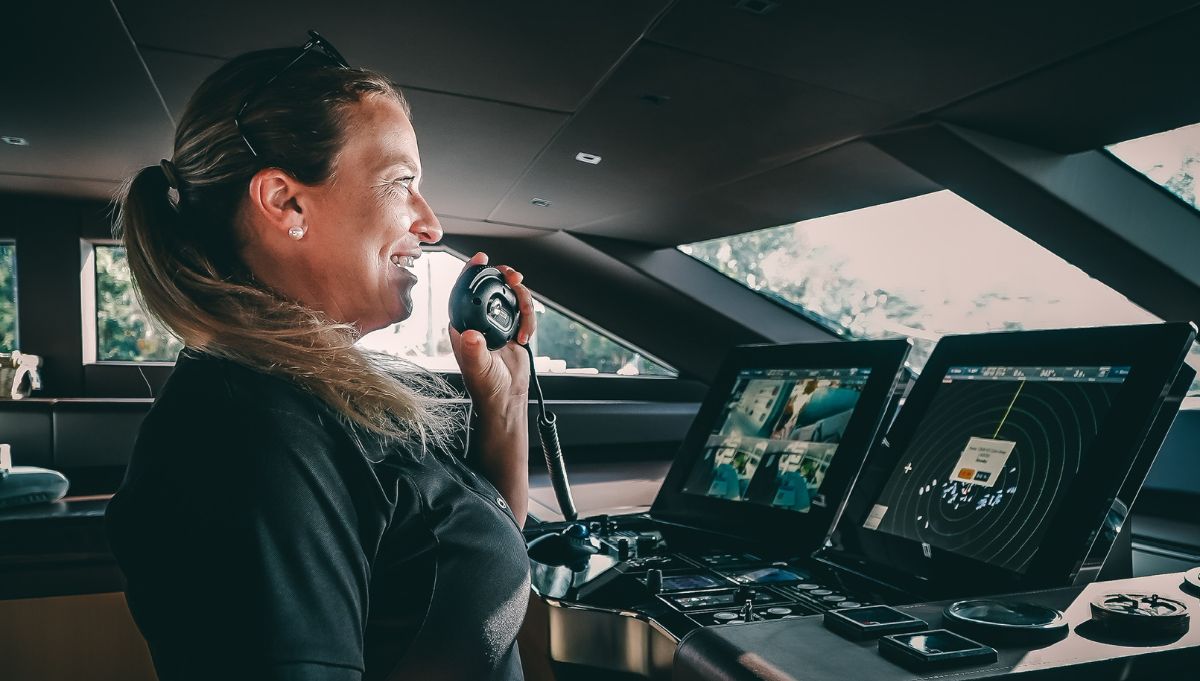
Changing landscapes
The early days of yachting were, in some ways, a much simpler time. Yachts on average were smaller, and captains and crews often came from a sailing or boating background. There were elements that a captain had to understand and undertake, such as holding a recognised commercial skipper’s ticket, keeping logs, managing the yacht’s accounts and so on. But as the fleet has grown and as yachts have grown, so too have the duties expected of captains.
“As a captain, especially the larger and larger you go in terms of yacht, you become the CEO of a company in a way,” Gordon offers. “But you’re doing what you’re trained to do. To operate and navigate the yacht actually ends up being the smaller percentage of what you do, and the day-to-day is emails, paperwork, schedules, plans, maintenance if you’re in the shipyard, and whether you charter or are private you still need to know where the boss or potential guest wants to go, and show them a good time.”
Paper tigers
One thing that has definitely changed over time is the increasing burden of paperwork related to regulatory elements such as the International Safety Management code (ISM) and in some cases the International Ship and Port Facility Security Code (ISPS). “The biggest change I’ve seen since I started is a regulatory change,” offers Captain Steve Osborne . “I find myself spending more and more time on more and more paperwork. There’s a lot of delegation you can do, but you have to really start to understand a lot of the legal frameworks of where you’re going [with the yacht] and be a bit more cautious and pay a bit more attention, because rules have changed over time and are a bit more stringent now.”
Gordon agrees that the burdens have increased, but also argues that there are benefits. “The paperwork has grown, but I think it’s a good thing,” she asserts. “I actually think there probably can stand to be a little more regulation in the industry. When I talk to my buddies who are working on commercial vessels and I see how things are done – granted, they have their own sets of issues as well – I think it’s good that we take a page or two out of their book.”
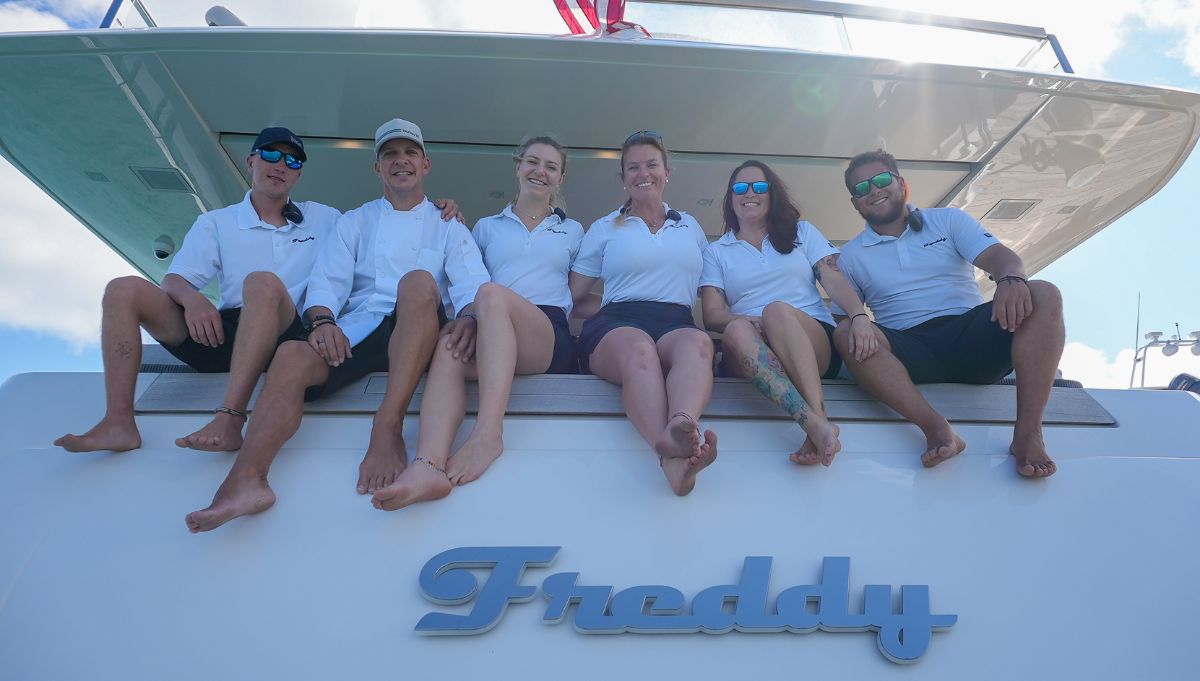
Mind over matter
One of the biggest elements of being a superyacht captain is being able to look after a superyacht crew, and that means not only nurturing and mentoring crew members but also, increasingly, being aware of other issues that can arise – particularly when crews are living in close quarters and working long hours.
“The driving-the-boat bit is easy, that’s our bread and butter,” says Captain Matthew Pownell-Jones. “It’s the other stuff that no one actually teaches you – how to care about the crew, how to listen to someone who has maybe just joined the crew and has a problem that no one knows about. The crew is a floating family, and if that’s the way you think of it then that’s how I feel a team works well.”
It’s something that Gordon has put front and centre not only of how she runs her own yacht and crew, but also of raising awareness in the industry of the importance of mental health considerations. “I’m pretty hard-charging in the mental health space for crew and the yachting industry,” she says. “I’m determined that we will see change, and will see a better and safer workplace for crew, both in terms of general safety on board and also in terms of mental safety.
“I’m not that old – I am only 42 – and just over the course of my life and in my 15 years in this industry I’ve seen it change in terms of being able to talk about it, and it being accepted as a conversation and as part of our overall health. It’s so important because on board we don’t work a nine-to-five then clock out and get to go home to our safe space.”
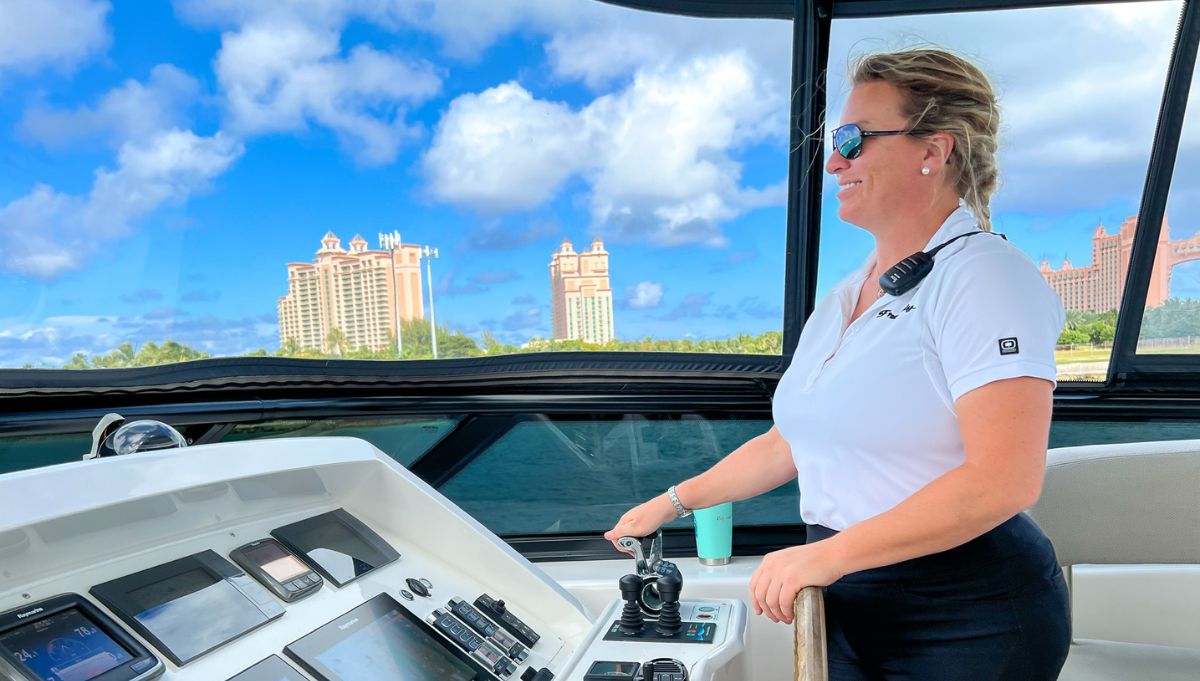
Guest appearance
For all the paperwork, planning and crew management, there is of course the part that makes superyachting what it is – yacht owners and yacht charterers enjoying what a superyacht offers and the places it can take them. It’s perhaps the final piece of the puzzle for an experienced superyacht captain.
“For private cruising or for yacht charter alike, first of all, you want to make sure the yacht is clean and ready to present to the boss or the guests and that each crew member knows who’s doing what,” Gordon enthuses. “If it’s a little booze cruise, the stews need make sure all the drinks are on board and that the yacht interior looks pretty nice and warm and fuzzy. My engineer has to make sure everything’s operating and working, and then the guys on deck make sure that everything’s taken care of on the exterior.
“Then with me, it’s communicating back and forth with the family or the charter guests as to where they want to go or what they want to do, and then communicating that to my crew. And when it gets busy and the days get long, with the crew potentially on call, I try to balance everything by making sure everyone is getting breaks, and offsetting the crews’ functions so that there’s always someone up with the guests and always someone getting some rest to be able to relieve whoever’s on duty.
“People ask me that the best part of my job as captain is outside being able to utilise my skill of navigation and operation of the yacht,” she concludes, “and my favourite part of the job is also the most difficult part – and that’s the crew. I love them to death. My current boat is a happy, fun, loving, playful, hard-working professional boat, but it’s taken a long time to put that together. If you work at it as a captain and you put the time in and invest in finding and mentoring, you can create that.”
Do you work in the superyacht industry? Yes No I would like to receive updates from Superyacht Life
Don’t miss out
Sign up to our newsletter and get our latest stories delivered monthly to your inbox.
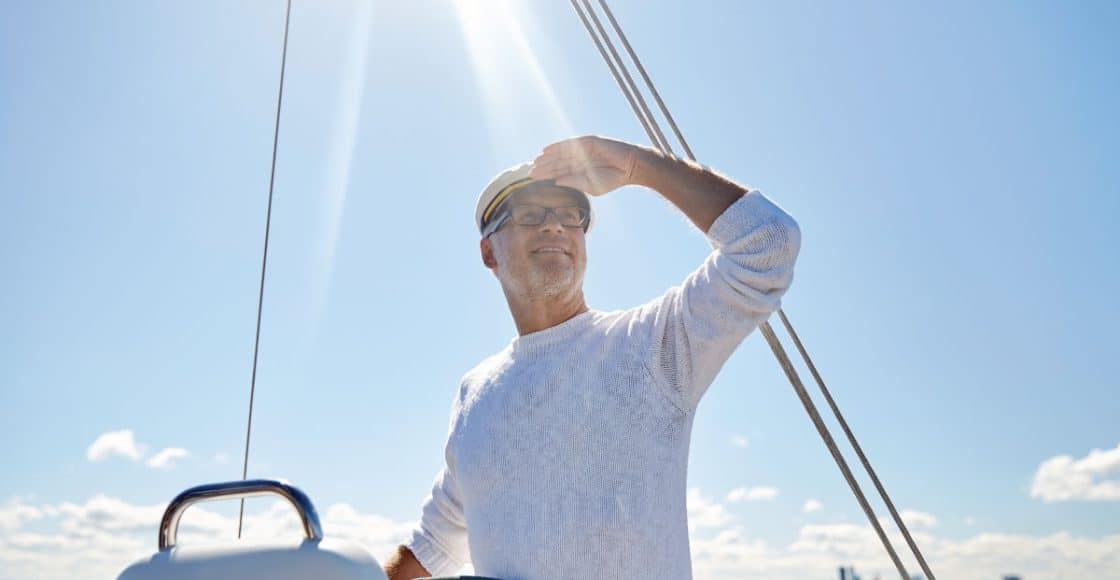
7 Things to Consider Before Getting a Captain’s License

Table of Contents
Mastering your boat is one thing, but formally being a master of a vessel is another. This worthwhile accomplishment comes with exacting but fair requirements.
If you’re 18 or older, you can obtain one of the most respected credentials available for boaters, a captain’s license. Not only does it ensure you know a lot about safety, but it also lets you operate higher-volume, large yachts.
Additionally, it opens up the opportunity to take paying passengers out on cruises. Whatever your reasoning, you’ll need some strong sea time under your belt, plus meet further qualifications. Here are seven items to consider before getting a captain’s license:
- Deciding which license is appropriate
- Document the minimum days’ requirement
- Boost up on health
- The drug test
- Complete first-aid training and CPR
- Prep makes perfect
- License expiration & continued learning
If you already have one, consider this: join the Boatsetter captains network !
List your boat & start earning an avg. of $20K yearly with Boatsetter
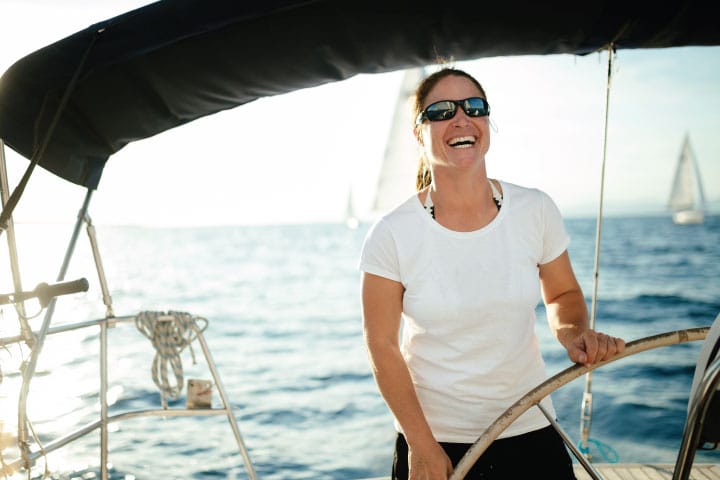
1. Decide which license is appropriate
The U.S. Coast Guard issues captain’s licenses. They fall into two primary categories, OUPV and Master. Since a Master’s license is for a well-experienced boater, the OUPV likely suits most of you. It stands for Operator of Uninspected Passenger Vessel.
Also commonly called a “Six Pack” license, it lets you take out up to six paying passengers and crew . Additionally, three different OUPV licenses are available: Inland License, Great Lakes & Inland License, and Near Coastal. Inland refers to all inland rivers and bays.
The second includes those waters as well as the Great Lakes. Near Coastal, meanwhile, means waters no more than 200 miles offshore. All three require you to have at least 360 days of documented deck service aboard boats.
Furthermore, 90 of the days must be within the past three years, on boats within those specific waters, too.
2. Document the minimum days’ requirement
To get a captain’s license, you also need proof that you’ve served time at the wheel or worked aboard. The Coast Guard provides a form, CG-719S, for this purpose. If you own a boat, you can document your days.
Otherwise, have the captain or owner of the boat upon which you work fill it out. Either way, four hours underway in one day aboard a boat of less than 100 gross tons qualifies as one day.
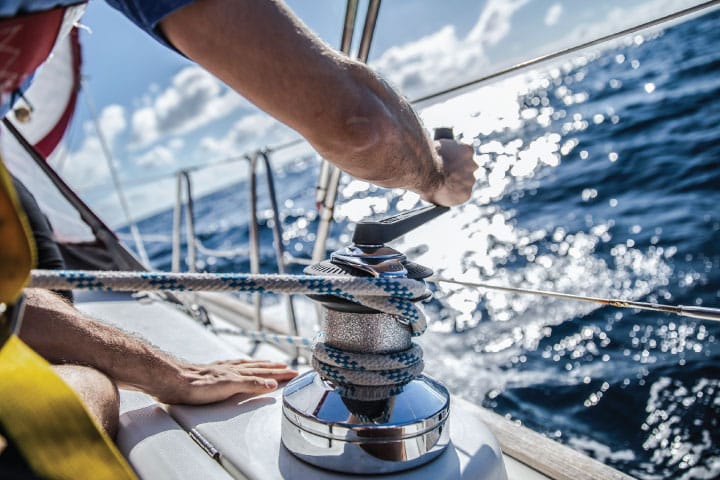
3. Boost up on health
Boating is as much about safety as it is about fun. Therefore, the Coast Guard requires passing a physical within 12 months before applying for your license.
4. The drug test
It doesn’t matter if you live in a state where recreational marijuana is legal. Neither does it matter if you have a prescription for medical marijuana. Since it’s illegal at the federal level, you won’t get a license if you test positive.
Want hands-on practice? Join the class on the water with Boatsetter Academy
5. Complete first-aid training & CPR courses
You must submit documented proof of taking these within a year before applying. The Coast Guard provides a list of approved programs. Ones from Red Cross, for example, meet the requirements. Maritime-training schools often do as well.
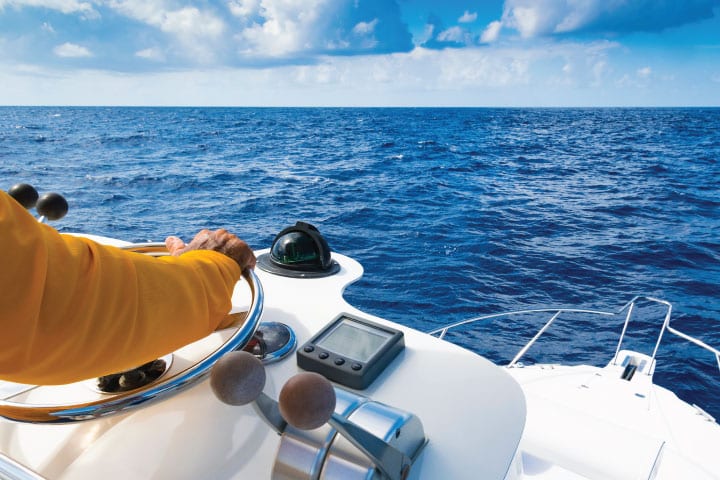

6. Prep makes perfect
Submitting all the above-mentioned documents is just the first step. Obtaining a captain’s license ultimately requires sitting for a written exam. The test covers the Rules of the Road, environmental responsibilities, captain’s responsibilities, and more. Thankfully, study courses and practice tests are available from reputable sources, including maritime-training schools.
7. Expiration date & continued learning
Like other licenses, once you get a captain’s license, it must be renewed. In this case, the period is every five years. Although you won’t need to take a written exam, you do need to fill out a renewal form, plus undergo a physical and take an approved drug test.
Boatsetter is a unique boat-sharing platform that gives everyone— whether you own a boat or you’re just renting — the chance to experience life on the water. You can list a boat , book a boat , or make money as a captain .
List. Rent. Earn— Only at Boatsetter

A journalist with more than 30 years’ experience, Diane M. Byrne is the owner of MegayachtNews.com, a daily website educating American superyacht owners, buyers, and their circles of influence about the leading builders, designers, cruising destinations, and more. She founded the website in 2007 as the first, and still the only, American-focused online media outlet exclusively covering this market. It features all-original content, for real stories of real interest.
Diane is additionally one of the most-sought-after journalists for expert editorial coverage and commentary about not only superyachts, but also general boating and yachting. Her byline appears in Boatsetter.com, DiscoverBoating.com, and the magazines Luxury Guide, Ocean, Yachting, and Yachts International.
Additionally, Diane is the Chair of the U.S. Superyacht Association, having been on the Board of Directors since 2015. Outside of yachting, she’s a trustee of Sempre Avanti, a non-profit resource supporting Italian and Italian-American individuals, businesses, and organizations in the United States and Italy.
Browse by experience

Explore articles

Sunset Cruises in San Diego: Rentals, Locations & Planning

Things to Do when Visiting San Francisco

7 Rivers and Lakes Near Washington, D.C.
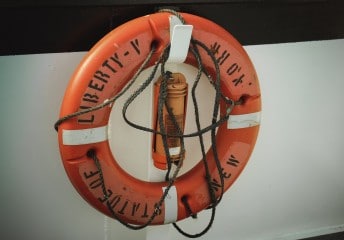
FAQ: Boatsetter Owner Safety
How to become a superyacht captain: From those who know

Some join yachting for a season, but for others, it transforms into a lifelong career. With travel, decent earnings, the possibility of rotation, and a life at sea, it’s easy to understand why. We spoke to captains Neal Roche and Liz Brasler about their yachting journey.

The journey begins
All captains must start somewhere. For captain Liz, and many others, it was dock walking to get her first deckhand job. After completing more than one Atlantic crossing with her parents on their sailing yacht, Liz started to dream bigger. The first step involved compiling a CV with her most relevant qualification being a PADI divemaster. Fate stepped in when a captain overheard Liz and offered her a job provided the swift completion of her STCW certificate. Luckily, Liz was able to proceed quickly due to some no shows on the first day of the course. The rest is history – Liz was accepted on the course, then the yacht, and so began her wonderful maritime journey.
Captain Neal Roche entered the industry from a commercial maritime background - a slightly different route, but not necessarily easy sailing. Captaining M/Y Dubai as his first captaincy, Neal described this experience as one of his career highlights.
Climbing the ranks
When Liz first joined yachting, she didn’t imagine becoming a captain. However, as time passed, she found herself wondering what she would do as captain in certain situations. These scenarios intrigued Liz to explore the possibilities. There were a few challenges during her training, the hardest modules for her being Stability and Celestial. Instead of exam cramming, Liz turned to online educational videos and knuckled down to completely understand them in every way. Becoming captain is by no means easy and provided many challenges. You must decide under what tonnage you want to operate and attain the correct license. There are countless courses to complete, none of which come cheap. Not to mention the process, which is certainly not quick, it takes years of study and practice.
Neal Roche said, “Luckily, there is nothing inherent that is needed to become a captain. Everything can be learned, however this of course takes time and patience. A new captain will often think that they should know everything because of the position they find themselves in. However, just like any other person in a new position or job, they will need time to learn the ropes. They should be prepared to be honest enough to admit if they don’t know something or ask for information/advice. It is important to be respectful, both of those you work for, and who work for you. Your crew will look to you for guidance and, to set the tone onboard, it is important to be respectful of them for this reason.”
Imparting advice
Liz advises any ladies wishing to pursue this career to do everything four times better than their male counterparts. According to Liz, as a female in a male dominated industry, “the sad truth is that the expectation of failure is higher if you are female.” Despite the unfairness of it all, Liz managed to hold her own in the industry and her hard work paid off. She is an inspiration to female seafarers everywhere.
Neal’s advice for those starting their first drive:
- Allow yourself the chance to learn the job. Understand that it will take time, and do not be afraid to ask for help or advice.
- Learn to prioritise your tasks to avoid becoming overloaded.
- Understand that delegating tasks is not seen as shirking the workload. It is giving the jobs to more appropriate people rather than doing it all yourself. People want tasks and it provides purpose, and the chance to show their captain that they can do a good job.
- Understand that your crew are your biggest asset. This is the most important one. You should work even harder for them than they do for you. It is important that from time to time you are happy to help with menial jobs. Get to know them and speak to them on a one-to-one basis regularly.
To be a captain is a privilege, however, it is only so because of the hard work and support of your crew. If your crew are happy and feel that they are listened to and respected, they will go the extra mile. Attentive crew, particularly on guest cruises, will be the difference between a good and a great result for your guests.
Maintaining professionalism is important, despite what may be happening around you. As a captain, striving to strike a balance between leading by example and encouraging and supporting crew determines their potential and helps them reach their goals. When looking for a job opportunity, keep in mind the destinations of the yacht itinerary before making a decision based on the potential earnings.

From all the advice, there was a definite common denominator that stood out. One thing the interviewed captains agreed on is the importance of mentoring. A mentor is your navigational guide through the ins and outs of your career. “In such a challenging environment, it can be a lonely path if you go at it alone,” said captain Liz. There are many misconceptions about being a captain. It’s important to seek advice from mentors who have experienced everything first-hand. Reality will prepare you and assist with informed decision-making that affects your future at sea.
Being a captain comes with a heap of responsibility and often-difficult decisions. Neal quashes the popular belief that the captain has limitless authority and says it is a farce. Like any CEO role, despite the position, as captain, you are constrained by budget, management, owner requests, weather, scheduling etc.
Of course, no matter your gender, there is also always the challenge of having to be away from family, despite your role onboard, never gets any easier.
Career highlights
Captain Liz is a firm believer that hard work and dedication pay off. Passing the especially challenging modules and her master's oral exam ranks highly among her career highlights. Liz also found the most positive inspirations were the new eager crew. Full of questions and inspired by her, when in fact she was inspired by their energy and optimism.
For Neal, other than his first captaincy, highlights include becoming captain of the M/Y Barbara build and subsequent operational captain. And of course, more recently, becoming build captain of project Z1010. Day to day perks of the job for him include working with a diverse bunch of fantastic people, seeing a crew knit together, knowing that you had a part in that, seeing a happy owner or guest, knowing that your team made them happy, being out at sea in a beautiful yacht, being able to bring about visible change and improvement in your working environment.

Where to next?
Liz reminds us that with COVID-19 our plans will need to be even more fluid than usual. She and her partner will both be looking for a new position taking into consideration the current global pandemic and restrictions. Ultimately, the dream is to gain a couple’s position with her chef partner, on a research or owner only adventure yacht or to join a new build and setting up a vessel in the shipyard, which is always an exciting challenge.
These captains have proven that with diligence, humility and studiousness, achieving your goals and making a difference is within reach.
Find out more about Virtual Pursers LLC . Alternatively, you can read further articles on Crew Training .
Tried & Tested

A jacket completes any crew member's uniform so it's an important garment to get right. In this Tried & Tested, Sea Design pits eight popular jackets against one another to determine which one is best for superyacht crew in 2023.
iAQUA creates high-performance, technologically advanced underwater scooters. In this Tried & Tested, a team of experienced testers have rated and reviewed the AquaDart Pro and AquaDart Nano series to reveal the stand-out iAQUA sea scooter.
In our 2022 Tried & Tested, yacht toy specialist EAMS and a group of captains and crew review a selection of the very best luxury water toys on the market. Find out which toy was crowned the winner...
SeaYou will be returning to Marina Genova for its 4th edition on Thursday 18th April and Friday 19th April, 2024....

MB92 Group and Pinmar, part of GYG Ltd, has partnered to launch a sustainability initiative in collaboration with the Ba...

Popular Articles
Finished reading now find your perfect supplier..
Search our industry-leading directory for over 20,000 superyacht suppliers, providers and marinas.
- 2024 BOAT BUYERS GUIDE
- Email Newsletters
- Boat of the Year
- 2024 Freshwater Boat and Gear Buyers Guide
- 2024 Boat Buyers Guide
- 2024 Water Sports Boat Buyers Guide
- 2023 Pontoon Boat Buyers Guide
- Cruising Boats
- Pontoon Boats
- Fishing Boats
- Personal Watercraft
- Water Sports
- Boat Walkthroughs
- What To Look For
- Best Marine Electronics & Technology
- Watersports Favorites Spring 2022
- Boating Lab
- Boating Safety

Seamanship Lessons From a Yacht Captain
- By Tonya Russell
- Updated: September 30, 2021

Despite the trademark high winds of Chicago, the afternoon summer sun beat down on my face while out on Lake Michigan. Squinting while wearing sunglasses, I fixed my eyes on the buoys as I navigated a 75-foot yacht. During my day of instruction with Capt. Kelly Gordon, she allowed me to take the wheel of the largest vessel I’d ever run in nine years of boating.
Over the last year or so, there has been quite an influx of boaters joining the community. This influx includes seasoned participants and novices, popping up in major port cities like Newport, Rhode Island; Miami, Florida; and Chicago, where Gordon mans a privately owned 75-foot Sunseeker. Gordon often catches these new boat owners trying to tackle the cerulean waters of Lake Michigan, as well as the locks. While a female yacht captain might be a rare sight on the water, Gordon has seen the best and worst of the influx, and too often, she witnesses couples having arguments, detracting from what should be a pleasurable experience. I know this all too well, and early on, my time on the water with my fiancé was quite the test. He had more experience than me, and it took quite some time for him to relinquish control and allow me to be his first mate.
Gordon, who splits time between Chicago and Fort Lauderdale, would love to see more women on the water, and she believes a good starting point is for couples to learn how to work together. Boating is the perfect opportunity to build trust with your partner, and it offers a proud collaborative effort that can help build a strong bond. It’s also a sexy pastime. A good place to start, Gordon believes, is including your partner in the basics.
“This season, a lot of boats have been sold, typically anywhere from a 30- to 50-foot range. I also see quite a few couples renting boats, and there is a lot of yelling,” she tells me. “I can’t stress enough how important communication is for safety and success on the water.”

Starting Points
I get my first taste of how a good captain operates by watching Gordon and her first mate, Gianna Mesi. They communicate with few words and have developed a rhythm that works for them. From the moment I step on the Sunseeker, I see this. While Gordon takes me into the engine compartment, Mesi is outside checking the fenders and disconnecting the water line. I wonder if this process was always this smooth, or if I’m watching the result of years of cooperation.
Launching can go more smoothly when tasks are delegated. Gordon likes to start her departure with fluid checks. “For your pre-departure engineering checks, you will check on the fluids in the main engines, as well as the antifreeze level, and the oil in the genset.” Gordon also checks the oil in the transmissions, then she glances at all of the hose clamps to make sure there are no leaks and that nothing looks loose. She also checks the through-hull fittings for cracks, water stains, and any other signs that they need to be replaced. Last, she looks for clogged strainers. If they are clogged, then the basket can be pulled out and cleaned.
Once these tasks are complete and she’s ready to launch, she switches power from the shore power to the generator. On the Sunseeker, that is as easy as pushing a button on a screen because it has a smart genset. “The genset senses when you start the generator, and it’ll switch from shore power to generator power,” Gordon explains. “Once you hear the air kick back on, the generators have taken over.” After I pushed the “power off” button, I listened as the air conditioners shut down, then whizzed back on.
For a boat without a smart genset, Gordon recommends turning off heavier loads, like the air conditioning. Then you’d disconnect shore power and fire up the generator.
Launching Tasks
- Check engine oil, antifreeze, transmission and genset, if applicable.
- Check hose clamps for looseness or drips.
- Make sure strainers aren’t clogged.
- Switch from shore power to generator power, if applicable.
- File a float plan to let others know where you’ll be.
- Do a safety review with any guests.

A good idea for couples would be for one to handle some of the checks, like pulling the dipsticks in the engine, and for one to be on the dock, ready to untie lines, pull up fenders, and disconnect the shore-power cords. With one partner on the dock, there are more eyes to ensure a smooth departure. Aboard this boat, Mesi handles the dockside tasks, working in sync with her captain and calling out commands that they both understand. “She and I have been working together for about three years now, so we’re getting to the point where she can just read my body language, look at my face, and she’ll know what it is I want, and I think ultimately that’s the goal to get to as a couple. There’s never any yelling or getting loud.” Before officially launching, the crew should all do a safety check before departure. That includes making sure there is a life vest for every passenger.
Gordon also files a float plan prior to leaving, then checks in with that person upon return.

Cool Runnings
As we embarked, I was reminded that time on the water is for pleasure. Gordon and I set out from the marina at the flybridge, which is where she has the best view of her surroundings. Once we were out of Burnham Harbor, Mesi joined us. After all of the times they’ve been out on Lake Michigan, they were still impressed by the miles of blue reminiscent of the Bahamas. I was thinking, All of this beauty in the middle of the US ?
As we encountered some boat traffic, Gordon informed me that boats with limited maneuverability have the right of way. “Unfortunately, too many boaters do not understand the right of way. So, I drive defensively.” Aggressive driving is just as bad, if not worse, on the water. A second set of eyes helps, and the pair watched for other vessels getting too close.
“When you are bigger, you must understand that you can cause more harm to others,” Gordon adds. “Being aware of your surroundings and being patient with novice boaters is so important.”
Still, captains can’t ignore the increase in accidents over the last year, which also coincides with the influx of new boaters. “Again, I want to emphasize the importance of communication,” Gordon says. “The more hectic it gets, the calmer I am, and that’s kind of a place you want to be yourself.”

One task is adjusting your radar, but also not being overly reliant on it. “Remember that radar doesn’t pick up every target, so you always have to maintain a proper lookout,” Gordon warns. “My eyeballs are constantly scanning the chart plotter and radar. I look at my dash, and then I look at what’s in front of me, and I just continually go through that cycle. I think a lot of folks get so reliant on the technology that they actually forget to look out the windshield in front of them.”
She recommends adjusting the radar in case of rain or choppy conditions, as well as high-traffic days. This is because it can also protect you in case a smaller vessel, like a sailboat, is without radar and doesn’t show up on your screen. If you have the capability, use a split screen for a close-up radar and one farther out. Fiberglass boats are also sometimes not picked up.
Cruising Tasks
- Adjust radar settings and scan it frequently.
- Don’t rely solely on your radar, your chart plotter or other electronics for what’s happening on the water.
- Keep your eyes scanning the water at all times.
Stopping Time
After a short cruise on the stunning waters of lower Lake Michigan, Gordon decided to demonstrate another crucial yet overlooked boating skill: Properly dropping anchor. Even with today’s modern technology found on most large boats, specifically a windlass, anchoring is not as simple as finding a good spot and hitting a button. The anchoring process starts by pointing your bow into the wind before dropping. The boat will probably blow backward, and facing the wind will ensure that it holds.
Gordon notices many boaters making one major mistake. “I see people having trouble dragging because they don’t put out enough chain,” she says. “Proper scope for anchoring is 7-to-1. So you want seven times the chain out as what the water depth is now, and in heavier winds, you’re going to need a little more chain.” For example, if the boat is in 10 feet of water, you’d need about 70 feet of anchor line.
Gordon’s anchor lessons came from a senior captain. Another piece of advice he gave her: In a crowded anchorage, to avoid too much swing, choose a 5-to-1 ratio. “You can never go wrong with 7-to-1, though,” she explains. After she drops anchor, she pulls back just a touch so that the line isn’t too long. For temporary anchorage for swimming, she still recommends 7-to-1. In a storm or rough seas, you might have to expand your scope to hold. If anyone will be getting into the water, you must have flags alerting other boats.
For manual anchors, Gordon recommends the captain assign a mate to drop and set it if possible so that the captain can maintain control of the boat. Don’t kill the engines until you’re sure the anchor is set securely.
Set It Right
- Try to anchor upwind if at all possible.
- Use a 7-to-1 anchor scope under typical circumstances, and make sure there’s enough chain to prevent anchor drag.

Locked and Loaded
Gordon also gave us a lesson on navigating channel locks, something I’ve never encountered back home in southern New Jersey and Philadelphia. But there’s one at the entrance of the Chicago River, and it offered an opportunity to show a scenario encountered by many boaters around the country. Before we entered the lock, Mesi prepared us by giving everyone a life jacket, which must be worn as you lock-through.
There’s an order for who gets to lock-through first. “Commercial traffic has priority, then government traffic, then we’re last since we’re recreational,” Gordon explains. She pointed to the traffic light and said that yellow allows priority traffic. We’d have to wait for the green to enter.
When arriving, a sweet border collie greeted us and gave us the signal to enter. Well, the dog’s job was actually to chase away birds, but she worked overtime at the lock operator’s side.
In locks where it is necessary to tie off while they raise and lower the water levels, make sure you have proper fenders and your own dock lines just in case. It’s also recommended to have some long-handled boat hooks to retrieve your lines after the water raises or lowers.
Locking Tips
- Life jackets are mandatory.
- Commercial and government vessels have priority, and recreational boaters go last.
- Bring fenders, and have your own lines and boat hooks.
- Abide the lockmaster’s guidance.

Bringing it Home
After an incredible day on the water, Gordon let us know it was time to head home. As we made our way back to the marina, she mentioned that sometimes the end of the day is actually the toughest.
Docking can be the ultimate test for couples or new boaters, especially if they are taking out friends who provide distractions. We’ve all been there. Everyone is loud and the music is bumping, so hypervigilance is necessary to keep everyone safe and to avoid any damage to your boat. Developing a docking strategy is ideal. Gordon says the best thing one can do is practice. “Find someone who is seasoned, who you’re comfortable with, and maybe even ask for lessons. There’s nothing wrong with that. There are plenty of captains who offer that service,” she advises.
Gordon encourages preparing for docking prior to takeoff. Figuring out where you’ll keep your fenders and lines will make tying up much more seamless. Some prefer to leave at least one line behind to use to catch the boat in high winds.
As Gordon slowly pulled into the marina, then close to the slip, Mesi began calling out distances from the dock to the swim platform and to the port side, as well as the pilings separating the Sunseeker from its neighbor on the starboard side. “Three feet!” Mesi yells. Then, “One foot!”
I’d never thought to shout distances or anything other than “You’re too close!” or “You’re going to hit the dock!” (Don’t judge me.) But hearing their communication enlightened me.
Gordon adjusts the throttles and pays attention to which direction the marina flags are blowing. “You really need to check and see what your winds and currents are doing so that you know how to compensate,” she says. “When I come in, I always look for a flag to see in what direction I’m going to get blown.” Many people cut off their boats when pulling into the slip, but Gordon strongly recommends keeping the boat running until you are tied up. “Otherwise, you won’t have any control over the boat,” she says.
After Gordon flawlessly settled the boat into its slip, Mesi worked quickly to secure it with the lines and fenders. And with that, we were home safe and sound. Personally, I learned much from my day that I’m going to take to my home waters. If nothing else, on the water it’s vital to remember: Teamwork is dreamwork.
Docking Tasks
- Practice before taking your boat out for the first time.
- Develop a system with your partner that works and that you both understand.
- Compensate for wind direction and current.
- More: Boating Safety , How-To , Seamanship
More How To

What to Do if Your Boat’s Engine Dies

I Learned About Boating From This: Capsize, Rescue and Lessons Learned

Should You Abandon Ship During a Boat Fire?

38 Top Make-Ready Tips for the Spring Boating Season

Boat Test: 2024 Starcraft SVX 231 OB CC

Boat Test: 2024 Bass Cat Caracal STS

Boat Test: 2024 Regal 38 Surf

- Digital Edition
- Customer Service
- Privacy Policy
- Cruising World
- Sailing World
- Salt Water Sportsman
- Sport Fishing
- Wakeboarding
Many products featured on this site were editorially chosen. Boating may receive financial compensation for products purchased through this site.
Copyright © 2024 Boating Firecrown . All rights reserved. Reproduction in whole or in part without permission is prohibited.
Essential Guides
Ocean Mapping
New to Yachting
Yacht Captain jobs
Your new adventure awaits.

Photo of Captain Sally-Ann Konigkramer
Explore more yacht roles
Other essential guides.

Mandatory certificates

What you need to know about B1/B2 visa

Download yacht crew CV templates

How to write a memorable yachting CV

How to prepare for a yacht interview?

What are the two main yachting seasons?

Big yacht crew hubs you should know about

Is yachting the right choice for me?

Yacht crew salary guide
Leading from the helm as a Captain is undoubtedly one of the most fulfilling and rewarding career paths in the superyacht industry.
The Captain holds the most senior position onboard a yacht and the one responsible for the overall operation of the yacht, the safety of its crew, owners and guests. It’s an all-encompassing position where excellent navigational capabilities are coupled with a high level of administrative and managerial skills.
The role differs depending on the size of the yacht, its usage and its cruising itinerary. Captains on smaller yachts need to be hands-on problem solvers and multitaskers. Under 35m, for example, the Captain’s position also encompasses the role of an Engineer, whilst on larger yachts the Captain has dedicated teams and Heads of Departments under their command.
What does a yacht Captain do? | Yacht Captain Job Description
Commanding the yacht and navigating safe passages across the oceans is just a small part of a Captain’s job. A yacht Captain is also in control of overall safety, crew management, budgeting, administration, refit projects, voyage planning and adhering to all international maritime regulations (ISM, MARPOL, SOLAS).
The responsibilities of a yacht Captain include:
Safe navigation and operation of the yacht
Ensuring that the yacht is in all respects compliant with the relevant laws and regulations
Ensuring that the yacht is prepared for annual flag surveys, annual class surveys and port/flag state controls
The setting of budgets and budget management
Hiring, leading, appraising and dismissal of crew
Overseeing the maintenance of the vessel
Ensuring legal and regulatory compliance
Managing yacht refits and surveys
Managing fuel costs and dockage fees
Being an ambassador for the yacht, hosting and entertaining guests as required
Voyage planning
Soft and hard skills required to be a yacht Captain
Successful Captains are excellent leaders, able to set a common goal for their crew and able to communicate with owners, guests, crew, contractors and brokers alike.
The skills of a successful yacht Captain include:
Excellent leadership, management and diplomacy skills
Excellent yacht handling and navigation
Ability to stay calm in difficult situations
Good grasp of finance and legislation
Excellent communication and interpersonal skills
Organisation and administration skills
How to become a yacht Captain?
Maritime training and sea-going experience is required. Positions are qualification based, from a Master 200, Master 500, Master 3000 and up to a Captain Unlimited. Training may be completed in a National Maritime Academy, a university or a specialised Sailing School.
Mandatory certificates needed to work on board a yacht
All crew members regardless of position and seniority need to have a valid STCW Basic Safety Training certificate, along with a recognised Seafarers medical certificate, the most popular being the ENG1 which is issued by an MCA (Maritime and Coastguard Agency) professional medic.
Without these two certificates, it is not possible for crew to work on board a yacht and a Recruiter will not be able to assist you in finding work onboard a yacht. For more information about mandatory certificates please visit our Mandatory Certificates Guide .
Are you ready to secure a Captain position on board a yacht?
Become a member of YPI CREW and connect with our recruiters so they can guide you through your job search.
Each of our recruiters is specialised in crew placement for a particular department and they will do their best to get you an interview on board a yacht. They will also advise you on how to best present your experience and skills and prepare for a yacht job interview.
YPI CREW TEAM
Ypi crew recruiters in charge of captain recruitment.

Ulrica Lindström
Head of Captain and Officer Department

Captain and Officer Recruitment Specialist

Caitlin Sorrell
Let’s get started. call us on +33 (0)4 92 90 46 10 or email us., our mission, vision and values, mlc 2006 compliance, essential guides, yacht crew positions.
Chief Officer
Second Officer
Third Officer
Chief Engineer
Interior Crew
Head of Service
Head of Housekeeping
Specialist Positions
Spa Manager
Spa Therapist
Personal Trainer & Yoga Instructor
Hairdresser
Mandatory Certificates
B1/b2 visa information, how to write a memorable cv, how to prepare for an interview, yachting seasons, yacht crew salary guide, is yachting the right choice for me, cv templates, ocean mapping, new to yachting.
+33 (0)4 92 90 46 10
Lighthouse careers
- [email protected]
- +33 451 088 780
- Calculate your salary

Yacht Captain job description
Being a yacht captain can be gratifying but there are a lot of job responsibilities, pressure and stress that can come with this position. According to Superyacht times , there are more than 8500 yachts in the world, and they all need at least one captain.
The job is not always as glamorous as it seems and it can get very demanding at times.
A yacht captain’s work is filled with adventure, stress, fun and exhilaration.
Yacht captain jobs
In general each yacht captain is responsible for maintaining safety and operating operations.
Similar to the role of CEO or president, the captain must administer the yacht under clear international rules and regulations while ensuring the owners and all guests onboard have a memorable and pleasant experience.
Generally speaking, the size of the vessel will dictate the specific responsibilities of the captain.
The smaller the yacht, the more hands-on the Captain must be. The bigger the yacht is, the more administrative tasks will be handled by the Captain.
The larger the vessel, generally speaking, usually means there are more complicated issues to deal with.
Job Responsibilities of a yacht captain
The yacht captain is responsible for everything onboard, ranging from hiring crew members, navigating the vessel, handling guest and owners requests, planning itineraries or planning shipyard maintenance and or refit periods.
They also have to deal with numerous compliance matters such as MARPOL, ISM, and other major regulatory requirements.
Most yacht captains perform administrative duties as part of their job.
These may include such as maintaining the logbook and other transportation records, security protocols, audits, accounts, communication with yacht management companies and contractors.
What are the characteristics that a yacht captain should possess?
A yacht captain has to have unfaltering good manners, be well spoken and presentable at all times. Be the first to greet guests when they board their yachts.
To become successful yacht captain you must be willing to learn about leadership and management, become a natural leader, be a great communicator and possess excellent interpersonal skills.
The yacht captain also has to follow a strict code of conduct and etiquette. A yacht is the ultimate luxury hospitality experience, you must be well aware of service standards. While you may not be directly involved with the service side of things, you will be in charge of recruiting crew members and maintaining very high standards, so you must be skilled at identifying these talents.
This challenging job requires well developed skills in leadership, interpersonal communication and at least two years of experience as a captain and the rest is training and certification.
The yacht captain has to be a good listener and observer, and must have an analytical mind. He/she should focus on safety aspects of yachting operations. A high degree of physical fitness is required as the yacht captain job requires him to work under various weather conditions including foul weather.
Employers look for candidates who are able to take responsibility, have good judgement.
Captains should be experienced at issuing orders at any levels. The Captain is also required to know safety general codes and the crew safe training.
Business and management experience will also be useful for helping to plan the crew, accounting and management of the yacht.
You should be effective in prioritizing tasks and managing workflow, be flexible to work with multiple stakeholders, set priorities and manage expectations.
All of this is your responsibility, you are accountable for everything that happens under your watch.
The best motor yacht captains are the ones who understand the industry and are able to adapt quickly and embrace their job responsibilities and environment.

How to get hired as a yacht captain?
When you receive your license, be aware that it will take some time before you land a dream job on a superyacht. It may take weeks or months, or years before you can get hired.
The fact is that they are more qualified captains than yacht captain jobs, thus the battle is intense.
What is the job market like for yacht captain?
The global superyacht industry is evolving quickly, with yachts getting larger and more numerous. This means there are more yacht jobs available than ever before for qualified candidates.
Longevity on previous position and good references are almost mandatory in order for yacht captain candidates to land a dream job.
Yacht captains qualifications
This job responsibilities, requires extensive navigation skills. Super yachts costs millions, so you don’t want to damage it.
Ideally you will have gained experience during 3 to 5 years as a chief officer, gained the necessary nautical miles and qualifications.
As a bare minimum, you will be required to have a 200-ton license and there license requirements can go all the way up to master unlimited.
It is a position that comes with a lot of responsibility, so you must be proven in this field before being trusted on such a job.
What’s the yacht’s captain market like?
The yacht captain market is extremely competitive and getting more so as the world’s superyacht fleet grows.
There are many people who would love to work on a superyacht, so landing one of those dream jobs can be arduous.
The top candidates will have a long list of references and endorsements from previous employers, along with a proven track record.
What’s the average yacht captain’s salary?
A captain’s salary can vary depending on the size of the yacht and where it’s based, and either the yacht is charter or private, rotation or permanent, or if the this is a motor yacht or sailing yacht.
The salary will increase with the longevity.
In addition to a salary, crew members can often get tips from charter guests.
Find out what’s the typical salary here
Find work as a yacht captain
The truth is that yacht captains jobs are not easy to find.
If you want to be a yacht Captain, you’ll need years of maritime expertise and specialized training working your way up through the deck/officer track. Hands-on sailing experience on a boat of similar size is necessary, with prior experience dealing with yachts in the same size range being advantageous.
Experience in the finance, business, and management of a yacht would be beneficial in assisting with crewing, accounting, and administrative duties.
Individuals who are looking for yacht crew may want to check out online job boards, or activate their own network but it is more likely that they will need the assistance of a professional recruiter.
Registering with a crew recruitment firm, such as lighthouse careers, ensures that you have someone who will advocate on your behalf and assist you in finding a dream career.
Here you’ll be asked to submit the necessary basic information and add your CV certificate and references.
Leave a Reply Cancel reply
Your email address will not be published. Required fields are marked *
Save my name, email, and website in this browser for the next time I comment.
Our Mission
We strive to be the first-choice recruitment service provider for both clients and candidates alike. Our goal is to make the recruitment process as smooth and seamless as possible

- Browse jobs
- Affiliates/PCCP
- Looking for crew
- Looking for staff
- Mission Statement
- Blog articles
- Baya, Building 7 400 Avenue Roumanille Village d’Entreprises Green Side BP 309 06906 Sophia‑Antipolis
© 2023. Lighthouse-careers

What Size Yacht Requires a Captain’s License? Find Out Here

Have you ever dreamed of captaining your own yacht? Whether you’re a professional skipper or an amateur enthusiast, owning a yacht requires a unique set of skills and qualifications.
In this article, we’ll discuss what size yacht requires a captain’s license, the process for obtaining one, the benefits, and the penalties for operating a yacht without a license.
Read on to learn everything you need to know about captain’s licenses.
Table of Contents
Short Answer
In the United States, a captain’s license is required to operate any vessel of more than 25 gross tons, or any vessel that carries passengers for hire.
This includes larger yachts, as well as commercial vessels.
Depending on the size and the intended use, a captain may need to obtain a Master’s license or a higher level of certification.
Additionally, some states may require captains to have a specific license for vessels operating in their waters.
What is a Captain’s License?
A captain’s license is a qualification required in the United States for individuals wishing to operate a yacht larger than 25 gross tons.
This license is granted by the U.
Coast Guard and allows the holder to be in compliance with all federal laws and regulations governing the operation of large vessels.
This license is also necessary for commercial purposes, such as chartering a yacht for business purposes.
To obtain a captain’s license, the applicant must pass a series of tests administered by the U.
Coast Guard.
These tests include a physical examination, a written exam, and a practical exam.
Those who pass these tests are awarded a captain’s license and are legally authorized to safely and legally operate a yacht of any size.
The captain’s license is an important qualification for yacht owners, as it ensures that they are operating their vessels in compliance with all laws and regulations.
It also serves as a demonstration of the holder’s expertise in the field of boating and maritime operations.
It is important to note that the captain’s license is a prerequisite for many commercial activities involving the operation of a yacht, such as chartering and other business activities.
A captain’s license is an important qualification for any yacht owner, as it ensures that they are in compliance with all laws and regulations.
Those who wish to obtain a captain’s license should understand the steps necessary to do so, as well as the importance of the license for operating a yacht.
What is the Minimum Size of a Yacht Requiring a Captain’s License?

When it comes to the operation of a yacht, safety should always be paramount.
In the United States, if you wish to operate a yacht larger than 25 gross tons, you will be required to have a valid captain’s license from the U.
This license is necessary to be in compliance with the federal laws and regulations governing the operation of large vessels.
The license is also required if the yacht is to be utilized for commercial purposes.
So, what size yacht requires a captain’s license? Generally speaking, if the yacht is larger than 25 gross tons, then a captain’s license is required.
The exact size of the vessel will depend on several factors, such as the type of vessel, its gross tonnage, and its intended use.
Coast Guard has a detailed set of regulations that outlines the requirements for licensing, and it is recommended that prospective captains familiarize themselves with these regulations before attempting to operate a yacht.
Additionally, the size of the yacht’s crew can also be taken into consideration.
Generally speaking, if the vessel requires more than four crew members, then a captain’s license may be necessary.
Additionally, some states may have different requirements for licensing, so it is important to familiarize yourself with the laws and regulations for the state in which you will be operating the vessel.
A captain’s license is necessary to safely and legally operate a yacht of any size.
It is important to note that the captain’s license is not the same as a recreational boating license, and it is important to understand the difference between the two.
In conclusion, the minimum size of a yacht requiring a captain’s license is 25 gross tons.
It is important to familiarize yourself with the laws and regulations pertaining to the operation of large vessels and to obtain the necessary licensing before attempting to operate a yacht.
What is the Process for Obtaining a Captain’s License?
Obtaining a captain’s license is not a simple process.
It requires dedication, preparation and commitment.
In the United States, the U.
Coast Guard is responsible for issuing captain’s licenses.
To become licensed, an applicant must first pass a series of tests administered by the U.
This includes a physical examination, a written exam and a practical exam.
The physical examination is conducted to ensure that the applicant is healthy enough to operate a vessel.
This exam includes measuring the applicant’s vision, hearing, and physical strength.
The written exam tests the applicant’s knowledge of nautical rules, regulations, and practices.
This exam is designed to ensure the applicant has a comprehensive understanding of the procedures and laws related to operating a yacht.
The practical exam is designed to test the applicant’s ability to safely and effectively operate a vessel.
This exam is conducted on the water, and the applicant must demonstrate their ability to maneuver the vessel in a variety of conditions.
In addition to passing these tests, the applicant must also possess a valid state-issued driver’s license, and must be at least 18 years of age.
The applicant must also provide proof of U.
citizenship, or a valid alien resident card.
The process of obtaining a captain’s license can be long and challenging.
However, those who successfully obtain a license will be able to legally and safely operate any yacht larger than 25 gross tons.
What Are the Requirements for Obtaining a Captain’s License?

Obtaining a captain’s license is an important and mandatory step for anyone who wishes to operate a yacht larger than 25 gross tons in the United States.
This license is necessary in order to be in compliance with federal laws and regulations governing the operation of large vessels, as well as if the yacht is to be used for commercial purposes.
The process of obtaining a captain’s license requires applicants to pass a series of tests administered by the U.
Coast Guard, including a physical examination, a written exam, and a practical exam.
The physical examination is to ensure that the applicant is physically fit to be the captain of a large vessel.
This will involve a vision and hearing test, as well as a general physical exam to make sure the applicant is healthy enough to handle the duties of a captain.
The written exam is a series of multiple-choice questions that cover topics such as navigation, marine safety, and boating laws.
This exam is designed to test the applicant’s knowledge of the applicable laws, regulations, and procedures for operating a large vessel.
The practical exam is a hands-on examination of the applicant’s ability to safely and securely operate a vessel.
This will involve tasks such as docking and anchoring, emergency procedures, and navigational skills.
This exam is designed to ensure that the applicant is capable of safely navigating a yacht in any environment.
It is important to note that once a captain’s license is obtained, it is valid for five years.
After five years, the license must be renewed in order to remain valid.
Renewing a captain’s license requires the applicant to complete a recertification course, as well as pass an oral exam.
By obtaining a captain’s license, the applicant is demonstrating their commitment to safety, as well as their knowledge of the applicable laws and regulations governing the operation of large vessels.
This license is necessary to safely and legally operate a yacht of any size, and is a vital part of the process of becoming a responsible and capable captain.
What Are the Benefits of Having a Captain’s License?
When it comes to operating a yacht, having a valid captain’s license is essential.
Not only is it a requirement by the U.
Coast Guard, but it also provides a number of benefits to the captain and passengers.
By obtaining a captain’s license, the vessel operator will have the knowledge and skills necessary to safely and legally operate a vessel of any size.
Having a captain’s license demonstrates to other boat operators and passengers that the captain is knowledgeable and capable of safely navigating and operating the boat.
This can help to build trust and confidence among all those on board, and make for a more enjoyable experience.
The captain’s license also provides a sense of responsibility to the captain and passengers, as the license holder is held to a higher standard when it comes to safety and navigation.
A captain’s license can also be beneficial for those wishing to pursue commercial opportunities with their yacht.
Having a valid license can increase the chances of qualifying for charter boat services, as most companies require captains to have a valid license.
Additionally, having a captain’s license may make it easier to obtain insurance and other services, such as financing, for the yacht.
Finally, having a captain’s license can provide a sense of accomplishment to the individual who has earned it.
Captains who have earned their license have demonstrated their knowledge and skill in operating a vessel, which is something that should be celebrated.
In summary, having a captain’s license can provide a number of benefits to the captain and passengers of a yacht.
Coast Guard, but it also provides a sense of trust and responsibility, as well as commercial opportunities and a sense of accomplishment.
What Are the Penalties for Operating a Yacht Without a Captain’s License?

Operating a yacht without a valid captain’s license is a serious offense, and it can result in significant penalties.
Depending on the size of the yacht, the operator may be subject to civil and criminal penalties, including fines, imprisonment, and suspension or revocation of the vessel’s registration.
The penalties for operating a yacht without a captain’s license can vary greatly depending on the size and purpose of the vessel.
For example, operating a large, commercial vessel without a captain’s license can result in fines of up to $50,000, and the vessel may be confiscated and the operator may face up to 10 years in prison.
Operating a recreational vessel without a captain’s license can result in fines of up to $5,000 and the vessel may be seized and the operator may face up to six months in prison.
In addition to the legal penalties, operating a yacht without a captain’s license can also put people’s lives and property at risk.
A captain’s license demonstrates a working knowledge of the federal laws and regulations governing the operation of large vessels, and it also ensures that the operator is familiar with the safe and proper operation of their vessel.
Operating a yacht without a captain’s license is a serious offense and can result in significant penalties.
It is important to remember that a captain’s license is necessary to safely and legally operate a yacht of any size in the United States.
If you wish to operate a yacht larger than 25 gross tons, make sure to obtain a valid captain’s license from the U.
What Are the Different Types of Captain’s Licenses?
When it comes to operating a yacht larger than 25 gross tons, having a valid captain’s license is absolutely essential.
The United States Coast Guard (USCG) issues several different types of captain’s licenses depending on the size of the vessel and its intended purpose.
The most basic license is the Operator of Uninspected Passenger Vessel (OUPV) license, which allows a captain to operate a vessel of up to 6 passengers for hire within a certain geographic area.
This license is commonly referred to as a “six-pack license.
” Next up is the Master of Near Coastal Waters license, which allows a captain to operate a vessel of up to 100 gross tons within a certain geographic area.
This license is commonly referred to as a “100-ton license.
” If a captain wishes to operate a vessel larger than 100 gross tons, then he or she will need to obtain a Master of Oceans license.
This allows a captain to operate any size vessel, anywhere in the world.
Finally, there is the Master of Assistance Towing license, which allows a captain to operate a vessel of any size for towing purposes.
This license is commonly referred to as a “towing license.
” No matter which type of captain’s license you need, it is important to note that all of them require the applicant to pass a series of tests administered by the USCG, including a physical examination, a written exam, and a practical exam.
By obtaining any of the above captain’s licenses, you will be in compliance with the federal laws and regulations governing the operation of large vessels, as well as be able to safely and legally operate a yacht of any size.
Final Thoughts
It is important to understand the requirements for obtaining a captains license if you plan on operating a yacht over 25 gross tons.
Not only will it make your voyage safer and more enjoyable, but it is also a requirement for commercial operations.
With the right knowledge and preparation, obtaining a captains license can be an achievable goal.
To learn more about the process, requirements, and benefits of having a captains license, be sure to visit the U.
Coast Guard website.
James Frami
At the age of 15, he and four other friends from his neighborhood constructed their first boat. He has been sailing for almost 30 years and has a wealth of knowledge that he wants to share with others.
Recent Posts
Does Your Boat License Expire? Here's What You Need to Know
Are you a boat owner looking to stay up-to-date on your license requirements? If so, youve come to the right place! In this article, well cover everything you need to know about boat license...
How to Put Skins on Your Boat in Sea of Thieves? (Complete Guide)
There is a unique sense of pride and accomplishment when you show off a boat you customized to your exact specifications. With Sea of Thieves, you can customize your boat to make it look like your...
- Share full article
Advertisement
Supported by
‘Below Deck’ Sails Into a New Era
With a different captain at the helm and new production elements, the reality show about charter yachts is switching up its style.

By Shivani Gonzalez
Starting a new season of “ Below Deck ” can be similar to returning to summer camp as a kid — you know it’s going to be fun and that you’ll be in the same environment, but some of the people will be different and you’re not quite sure what the vibes will be.
This time around, in particular, feels that way because for the first time in the show’s 11-season run, Captain Lee Rosbach is no longer at the helm. It’s a pivotal moment for a franchise that has become one of the most popular entities in the sprawling universe of reality TV since premiering on Bravo in 2013 . The show’s appeal was built on endless romances between various crew members (“boatmances,” as they came to be known), horrible charter guests and some sort of passive-aggressive fight about how many shackles of the anchor chain should be in the water. And there was always Rosbach presiding over the drama as he trudged around the boat, reeling off one liners like “I’m madder than a pissed-on chicken” and “we screwed the pooch so many times we should have a litter of puppies running around.”
At the center of the show now is Kerry Titheradge (the stern yet goofy captain of “Below Deck Adventure” fame), who is managing the Motor Yacht Saint David with the cheeky chief stew Fraser Olender by his side.
With that change in captain, the energy on the boat — both onscreen and off — is different, according to Olender.
“Lee has a no B.S. attitude, which I love with him,” Olender said in an interview. “With Kerry, he taught me a lot and sort of forced to me confront issues directly with my team, work them out, as opposed to making executive decisions too soon.”
This shift in management style changes the central conflict — whereas the drama once focused on the captain swiftly kicking out any unpleasant crew member (as we might have seen with Rosbach), the drama now focuses on the whole crew trying to get along (since Titheradge gives people those second chances).
Additionally, Olender noted that the captain’s relationship with the crew can also affect the drama on board.
“Captains absolutely do get involved, whether they know it or not,” Olender said, adding that for the crew, everything is about “trying to impress your captain.”
This phenomenon plays out early in the new season when the lead deckhand, Ben Willoughby, called out a fellow crew member over the radios about not wearing a life vest — something he easily could have done in private. The drama that followed became an interpersonal conflict between the two of them, both with the ultimate goal of impressing Titheradge. (Of course, the two deckhands had kissed on the previous crew night out, which is more in line with the “Below Deck” drama viewers are used to.)
For “Below Deck” showrunners, the changeovers in the cast allowed them to rethink what the show would look like.
From the season premiere, it was immediately apparent that Rosbach’s absence wasn’t the only change this season: The filming is sleeker, the daily, multicourse meals prepared by the chef are given their own glamour shots and the cameras sometimes cut to the perspectives of yachties running around on deck and through the galley.
“Our showrunner, Lauren Simms, is an avid consumer of all different kinds of media,” Noah Samton, a senior vice president of unscripted current production for NBCUniversal, said in an interview. “She pitches us different ideas on how to stylistically evoke different feelings and change the mood a little bit of ‘Below Deck’ without removing what really works.”
Moving through the rest of the season, and potentially through seasons to come, Olender is aiming to bring a cutthroat management style while also bringing affection for his stews, all with his signature British humor.
On Bravo’s side, there are changes in the works for the other “Below Deck” spinoffs — including “Sailing Yacht,” “Mediterranean” and “Down Under” — which collectively, have 26 seasons. Specifically, Samton said that “Down Under” is currently filming and that even though fans should be ready to see new things, the show will stay true to its original concept.
“These are real yachties doing a real job so you have to stay within those confines because the audience isn’t going to want anything that is too produced or fake,” Samton said. “So we have to find ways to reinvent while staying true to the original concept of the show.”
And as Olender said: “I’m sure that every year if I were to work with this franchise again, that I’ll be thrown a collection of total chaotic and disastrous stews — that’s what makes it watchable.”
An earlier version of this article misquoted Fraser Olender, the chief stew of “Below Deck.” He said, “I also feel like Kerry this season. ... Lee has a no B.S. attitude, which I love with him,” not “I feel like Kerry this season, as opposed to Lee, has a no B.S. attitude, which I love with him.”
How we handle corrections
Shivani Gonzalez is a news assistant at The Times who writes a weekly TV column and contributes to a variety of sections. More about Shivani Gonzalez
Screen Rant
Below deck’s captain kerry & fraser scramble after jared & cat’s sudden exits.
Below Deck season 11 saw two dramatic crew exits last episode, but what happens when the remaining staff begins to scramble under the pressure?
- Two crew members leave the St. David unexpectedly, causing chaos for Captain Kerry and Chief Stew Fraser.
- Captain Kerry explains Cat's sudden departure to the crew due to family reasons, leaving them short-handed.
- The crew struggles to manage tasks with employees missing, but Captain Kerry's agency has replacements on the way.
Below Deck season 11 saw two back-to-back departures in its most recent episode, which have left Captain Kerry Titheradge and Chief Stew Fraser Olender scrambling to keep the St. David running smoothly . While Captain Kerry chose to fire Jared Woodin after some major performance issues, the team didn’t expect to lose a second crew member this early in Below Deck season 11 ’s charter season. After Jared’s unexpected exit, the crew noticed that Stew Cat Baugh was struggling to keep going during the current charter. Cat, who’s had some emotional issues throughout the season, chose to suddenly leave the St. David.
In a preview clip from the next episode of Bravo ’s Below Deck, the crew of the St. David are scrambling after losing two crew members in quick successio n. Explaining to the team what happened with Cat, Captain Kerry kept things brief. “She has some family things going on at home, she had to get the hell out of here,” Captain Kerry explained to the rest of the crew, who were understanding. “We’re two crew down,” he explained in an interview segment. “We’re in a tough situation. My focus is supporting my crew.”
Elsewhere, Xandi and Fraser struggled . With Cat missing, they were working twice as hard . “I feel like everyone’s running around,” Xandi complained to Fraser, who appeared in an interview segment of his own discussing the crew. “ We’re in deep ****,” he explained. “We’re missing someone outside, and now someone inside…Losing a stew is [difficult].” Xand Olivieri, on the other hand, was struggling with Barbie Pascual. “We’re a stew down - we’re doing the best we can, you have to be everywhere,” Barbie shared, while Xandi shared that she feels Barbie, “doesn’t sometimes know what [tasks] to prioritize before others. It is frustrating.”
20 Best Reality TV Shows Right Now
Captain kerry & ben run into major engine problem.
While taking the charter guests on an excursion, Captain Kerry and Ben Willoughby, new Bosun of the St. David , ran into a major mechanical issue with their transport boat . “I think she got some **** in the impeller,” he explained to Captain Kerry, before sharing what that meant. “It’s the sound that you’d never want to hear,” Ben explained, “sand gets sucked up into the impeller. It’s like a grinding, crunching sound that means you’re in trouble.” Captain Kerry explained it seemed like the engine was overheating, but the two devised a quick, albeit irritating, plan to keep everyone safe.
While the crew of the St. David is prepared for nearly any circumstance, b eing down two crew members is a struggle for even the most seasoned of yachties . For crew mates like Ben and Fraser, dealing with the pressures of Below Deck along with the day-to-day stresses of yacht life is familiar, but the rest of the cast doesn’t have the same level of experience. Working their charter and dealing with the element of reality TV while being down several key crew members is tough, and the cast of Below Deck season 11 is handling it as best they can.
As Below Deck season 11 continues, it appears there will be some hope for the crew of the St. David after they deal with some genuine struggles. Captain Kerry’s staffing agency has a deckhand who they’re sending to fill the open spot on the St. David, who will likely be introduced in the next episode of Below Deck . There will surely be another stew joining the crew as well, meaning the St. David will be back to fully staffed, and hopefully, the rest of Below Deck season 11 will go off without a hitch.
Below Deck airs Mondays at 9 p.m. EDT on Bravo, then streams the following day on Peacock.
Sources: Bravo /YouTube, Below Deck /Instagram
Below Deck is a popular reality TV franchise that focuses on a group of crew members as they work on luxurious yachts and cater to their client's needs. After the original series proved to be a success, Bravo developed a handful of spinoff shows including Below Deck Selling Yacht, Below Deck Adventure, Below Deck Down Under, and Below Deck Mediterranean.

IMAGES
VIDEO
COMMENTS
What Does a Yacht Captain do? Driving the boat is just a small part of a captain's job — many say the easiest part. Captains also hire and manage all other crew on board, plan and execute voyages around the owner's and charter guests' expectations, organize repairs and maintenance, control costs, and adhere to all international, flag, and port state regulations — all while providing ...
2. Spend additional time training on a boat. Even though you only need 360 days of sea-time to get your license, if you want an actual job as a captain, you will usually need at least three to four years of professional experience. This experience should be directly related to the operations and management of a ship.
Motor Yacht A, a symbol of luxury and success, was built by Blohm Voss and designed by Philippe Starck and Martin Francis. It's owned by Russian billionaire Andrey Melnichenko and cost approximately US$300 million. Notable features of the yacht include its modern, minimalist interior, capacity to accommodate 14 guests and a crew of 42, and ...
Ken has over 1 million miles on the water. He is currently in charge of a 136' Horizon Yacht that was sold in 2020 by United Yacht Sales broker Greg Graham. One advantage of working with a professional yacht broker is the referral of a reputable captain that broker knows and trusts. Known for being very thorough and detail-oriented, Captain Ken ...
Equal to the Yachts are the Yacht Owners, whose complexity rivals their yachts. My small role in this world is as their captain. From Homer to Ahab, there is a historical fascination with the role of the captain, and today the title Captain brings with it a sense of expectation, a hoped-for competence. A sense of maturity in thought and action.
Survey data shows that between 180 feet and 240 feet, yacht captains had an average salary of just over $16,100 per month in 2021. That means a starting, low end salary of $9,200 per month which went all the way up to $23,250 per month. Tips closed in at just under $3,700 per month as well. From 240 to 280 feet a yacht captain averaged just ...
Yacht Captain Job Description. The Yacht Captain is responsible for the total operation of the yacht. The position ranges from being in charge of a full-time staff of one to being the CEO of a large operation with many departments, personnel, and a large budget. The Yacht Captain is the navigator, and as such is responsible for the safety of ...
Pat spent most of his days as a captain running a charter boat around the world, fishing world-renowned destinations in Mexico, St. Thomas, the Bahamas, the east coast of the United States, and Venezuela. A captain and broker from HMY Yacht Sales, Simon Graham. Simon has an extensive yachting background. As a licensed captain, Simon sailed in ...
As a rule, the smaller the yacht, the more hands-on the Captain must be. The larger the yacht, the more administrative duties the Captain will hold. A superyacht Captain specialises in commanding and managing luxury yachts over 24 metres in length. Every crew member falls under the ultimate command of the Captain and will answer to him/her.
In this step-by-step guide, we'll cover the qualifications and requirements for becoming a superyacht captain, as well as what superyacht captains do on a day to day basis. We'll also look at the Merchant Marine Officer License, experience and knowledge requirements, and technical certifications needed to become a superyacht captain.
Becoming a boat captain can be an unexpected but rewarding career. It involves gaining a captain's license, building sea days, and learning on the job. Despite challenges, it offers travel, adventure, and a unique lifestyle. However, transitioning out can be tough, so planning is key. Questions.
About the Captain The captain onboard a yacht has a record of longevity, excellent owner references and strong crew management skills. This individual should possess working knowledge of yacht management and safety in addition to financial administration. The captain will excel in planning and communicating various itineraries to the owners and ...
29 Mar 2016. The salary of a yacht captain is based on tenure, experience and licensing. Captains of luxury yachts command a base salary well into six figures. Dependent on the length of the vessel, tenure of experience, and level of licensing yacht captain salaries range from $48,000 to over $300,000. As the length of yachts increases, the ...
However, some ship captains made upwards of $160,000. Working aboard container ships and private superyachts is the most lucrative in the industry. The highest-paying states for captains, mates and pilots of water vessels are Louisiana, Florida, Texas, California and Virginia, where the annual mean wage ranges from $89,000 to $113,000. 4.
The simple answer, says Gordon, is no - and in fact the role of a modern yacht captain is highly complex and multifaceted. Take Gordon's current command, for example - a 33-metre private yacht that cruises extensively with the owning family on board. "My responsibilities of course encompass safely operating and navigating the boat ...
YACHT CAPTAIN SALARIES. Captain salaries do vary, depending on the level of experience as well as the size and type of yacht they are working on. Larger yachts tend to offer higher salaries, reaching an average of €18,000 per month on vessels between 81 and 100 meters. Captains of smaller motor and sailing yachts, ranging between 41 and 50 ...
Otherwise, have the captain or owner of the boat upon which you work fill it out. Either way, four hours underway in one day aboard a boat of less than 100 gross tons qualifies as one day. 3. Boost up on health. Boating is as much about safety as it is about fun. Therefore, the Coast Guard requires passing a physical within 12 months before ...
The journey to captain is certainly not easy, but Virtual Pursers have interviewed some inspirational captains to give aspiring yachties and crew members from tips. ... When looking for a job opportunity, keep in mind the destinations of the yacht itinerary before making a decision based on the potential earnings. Challenges. From all the ...
John Linn. Despite the trademark high winds of Chicago, the afternoon summer sun beat down on my face while out on Lake Michigan. Squinting while wearing sunglasses, I fixed my eyes on the buoys as I navigated a 75-foot yacht. During my day of instruction with Capt. Kelly Gordon, she allowed me to take the wheel of the largest vessel I'd ever ...
We have exciting yacht captain careers available! We're a leading yacht crew recruitment agency with various jobs. Apply now & start a rewarding career!
The yacht captain is responsible for everything onboard, ranging from hiring crew members, navigating the vessel, handling guest and owners requests, planning itineraries or planning shipyard maintenance and or refit periods. They also have to deal with numerous compliance matters such as MARPOL, ISM, and other major regulatory requirements.
A captain's license is necessary to safely and legally operate a yacht of any size. It is important to note that the captain's license is not the same as a recreational boating license, and it is important to understand the difference between the two. In conclusion, the minimum size of a yacht requiring a captain's license is 25 gross tons.
Video Log of a Super Yacht captain both on and off the ship. Following the life of luxury yacht crew.Captain Tristan Mortlock is an award winning Super Yacht...
With a different captain at the helm and new production elements, the reality show about charter yachts is switching up its style. By Shivani Gonzalez Starting a new season of "Below Deck" can ...
Bravo's only female yacht captain, Captain Sandy Yawn, added, "I'm sober. My sponsor goes, 'Sandy, when a door of opportunity opens, walk through the door, cause you can always walk back ...
Below Deck season 11 welcomed Captain Kerry Titheradge to the crew of the St. David, and his presence has been a welcome breath of fresh air, changing the franchise entirely.While Below Deck has primarily featured Captain Lee Rosbach in the past, the older Captain stepped away from yachting when he sustained an injury that made it difficult for him to work comfortably.
Below Deck season 11 saw two back-to-back departures in its most recent episode, which have left Captain Kerry Titheradge and Chief Stew Fraser Olender scrambling to keep the St. David running smoothly.While Captain Kerry chose to fire Jared Woodin after some major performance issues, the team didn't expect to lose a second crew member this early in Below Deck season 11's charter season.